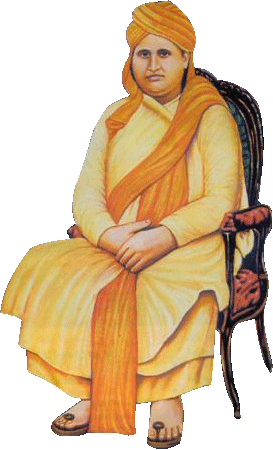











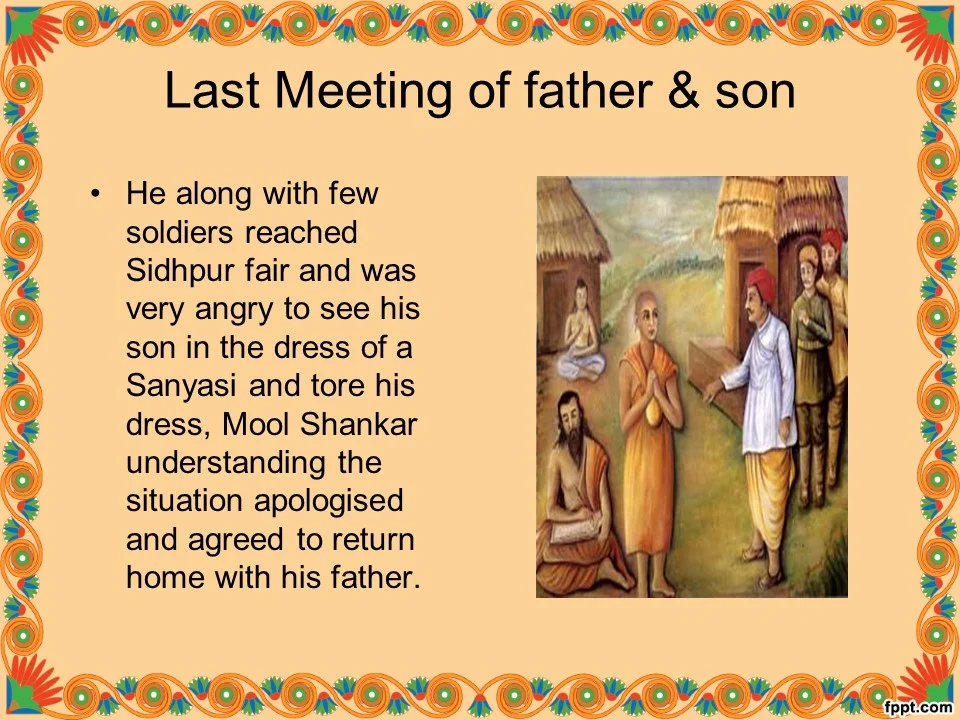
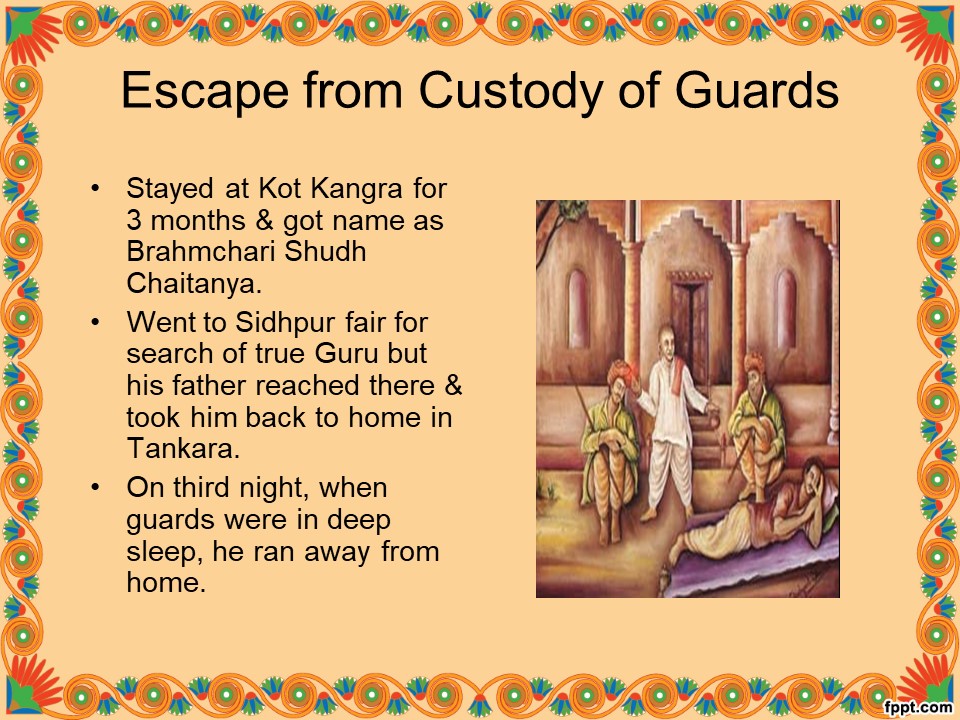

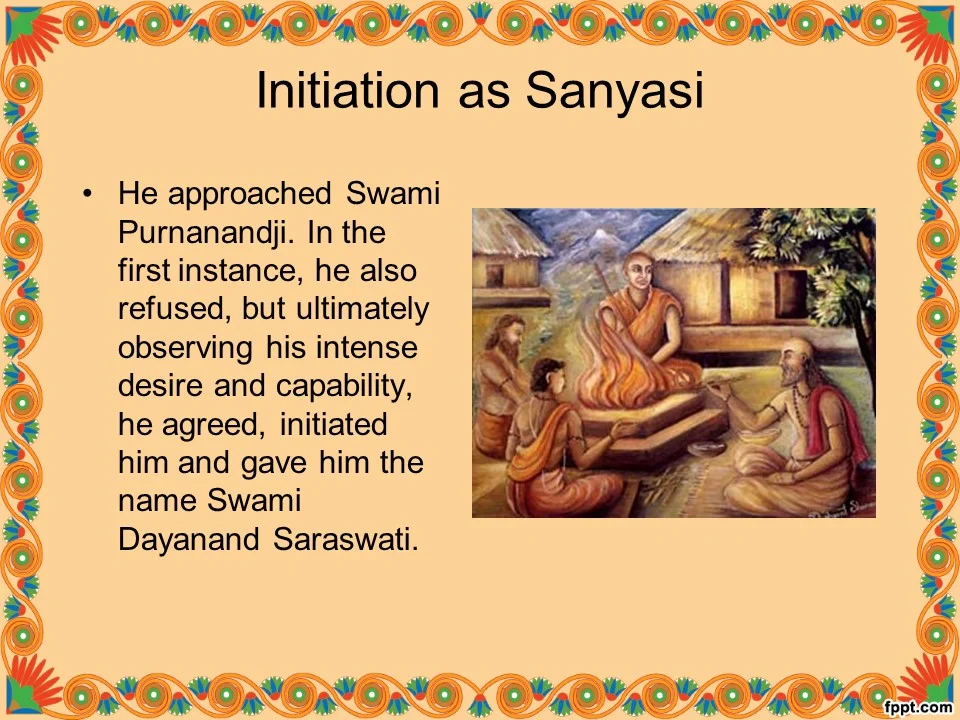
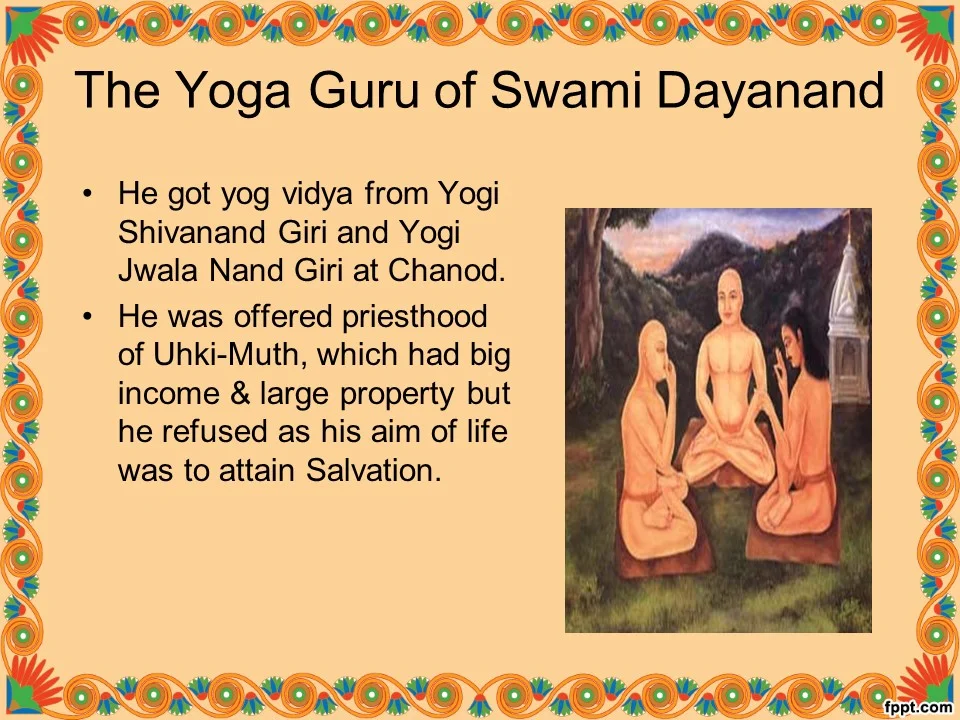
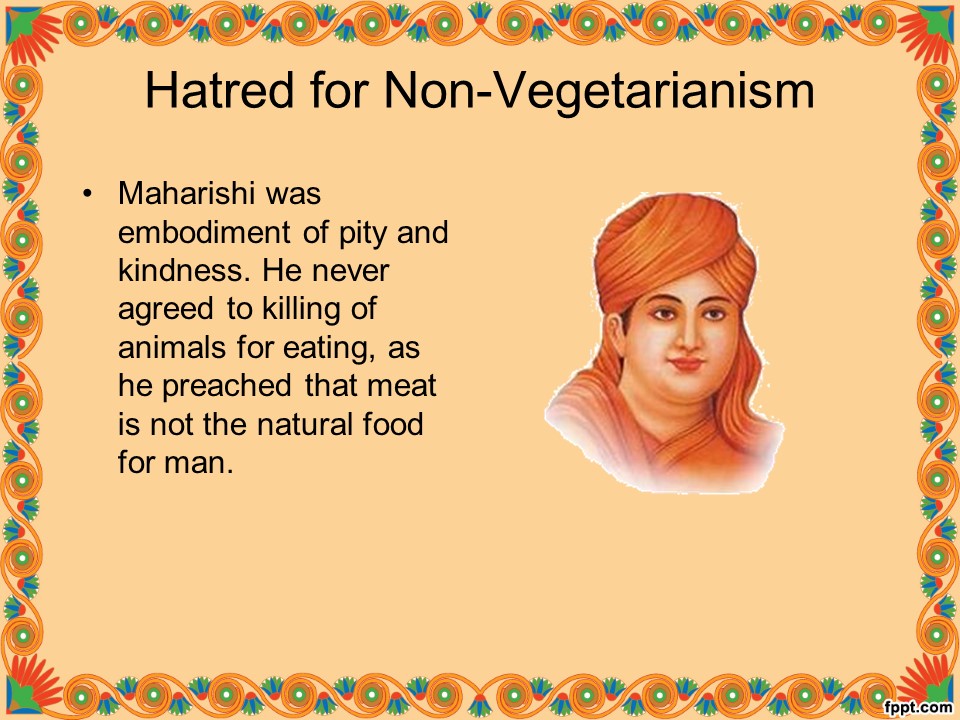
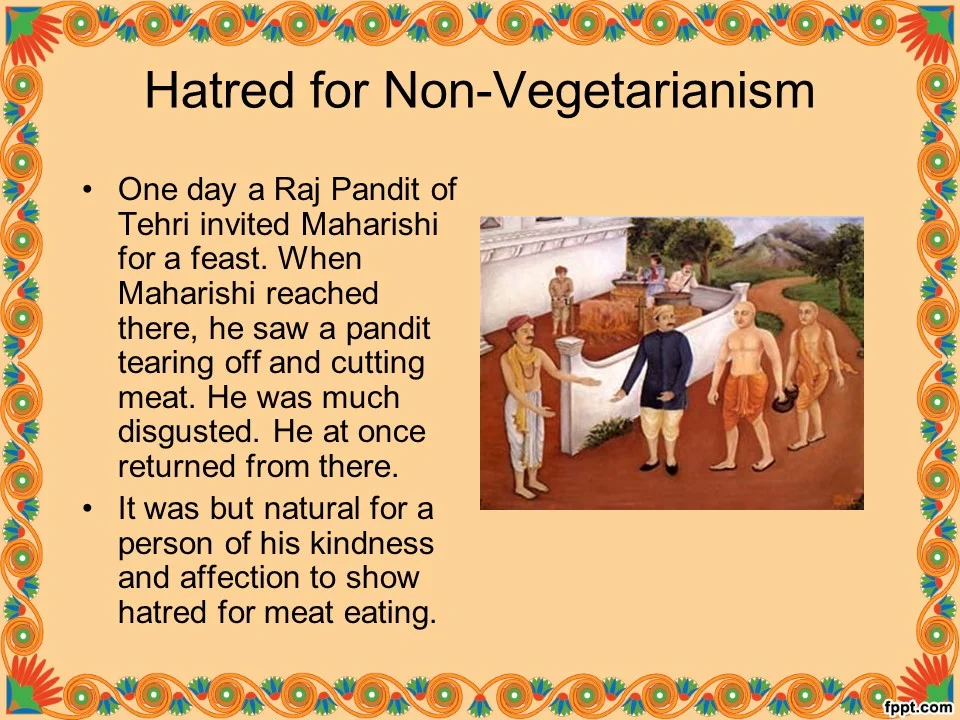
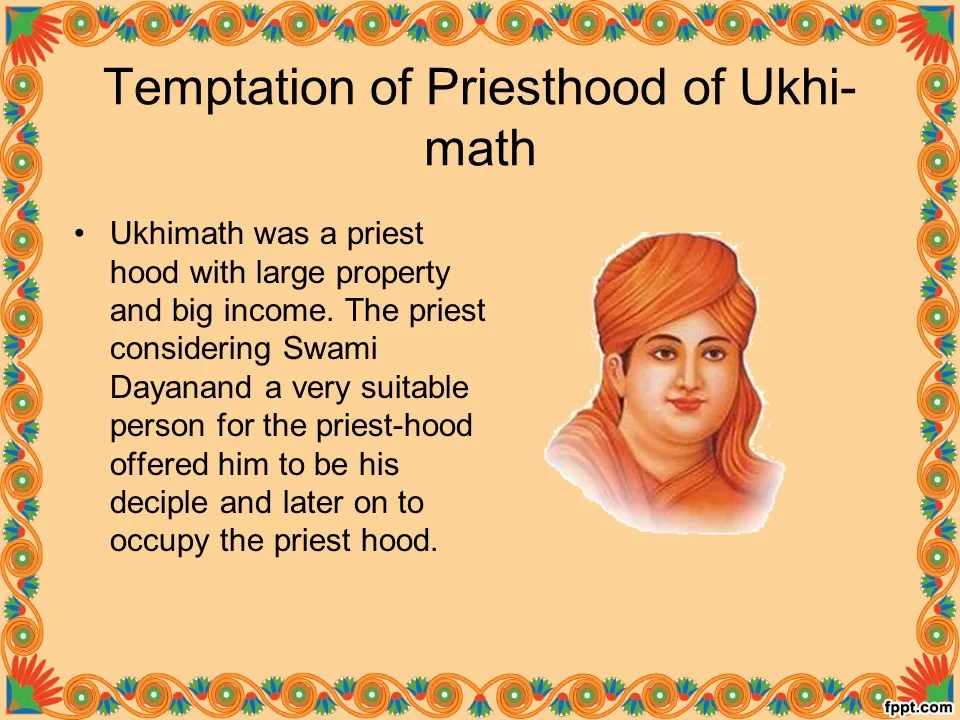
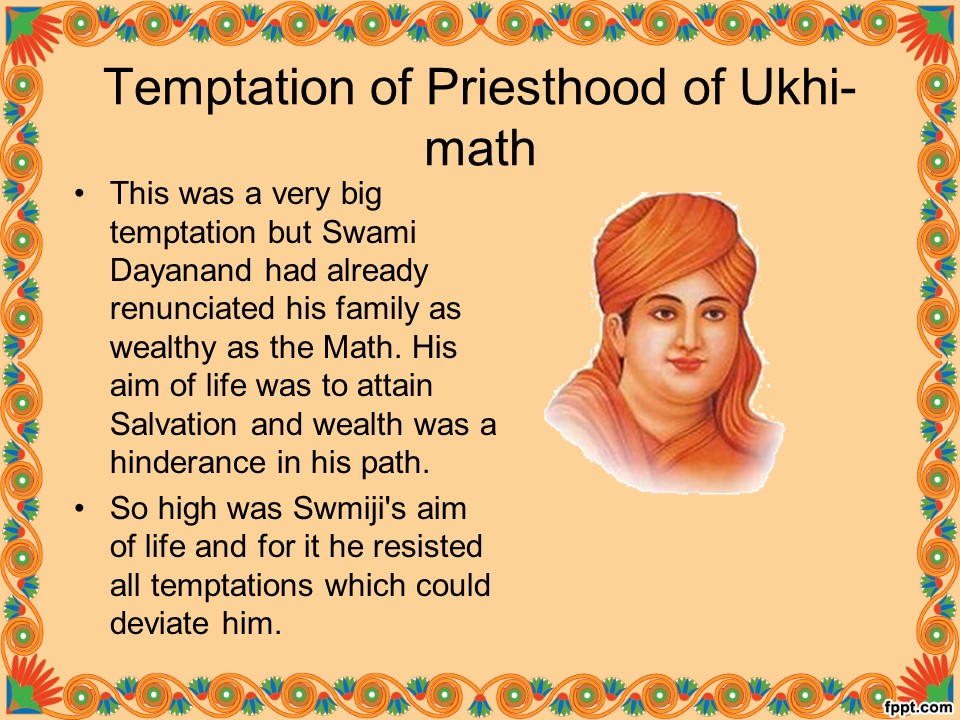
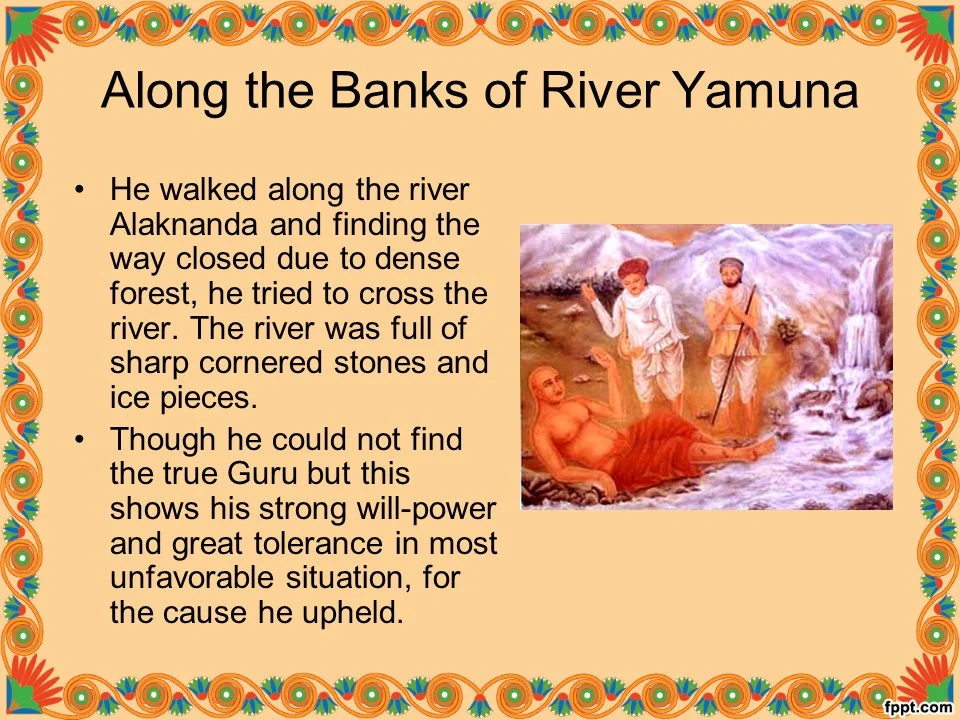
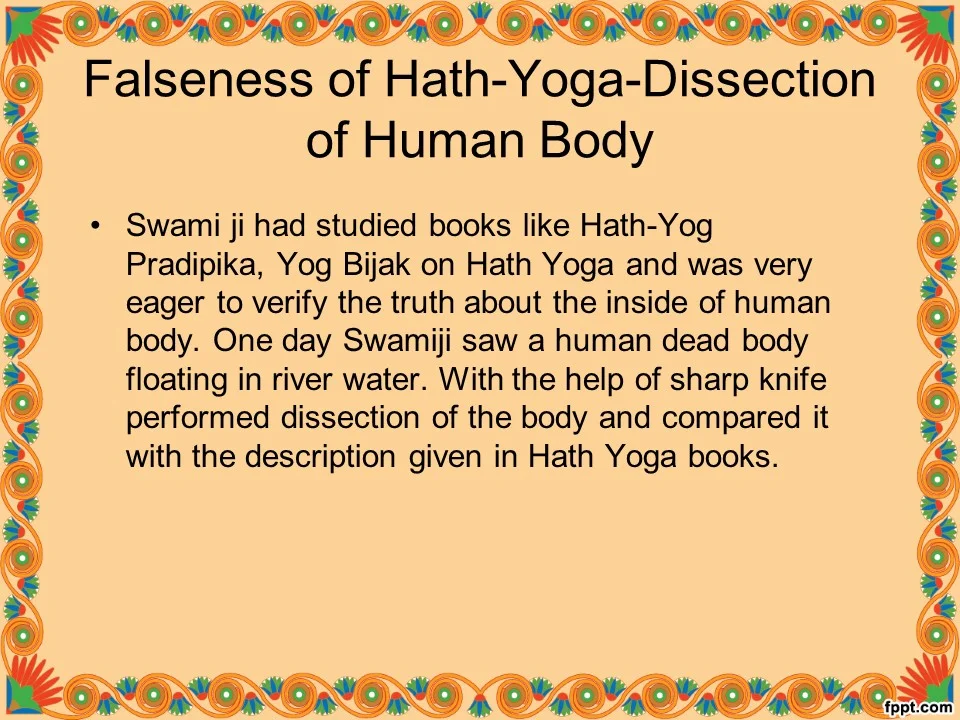
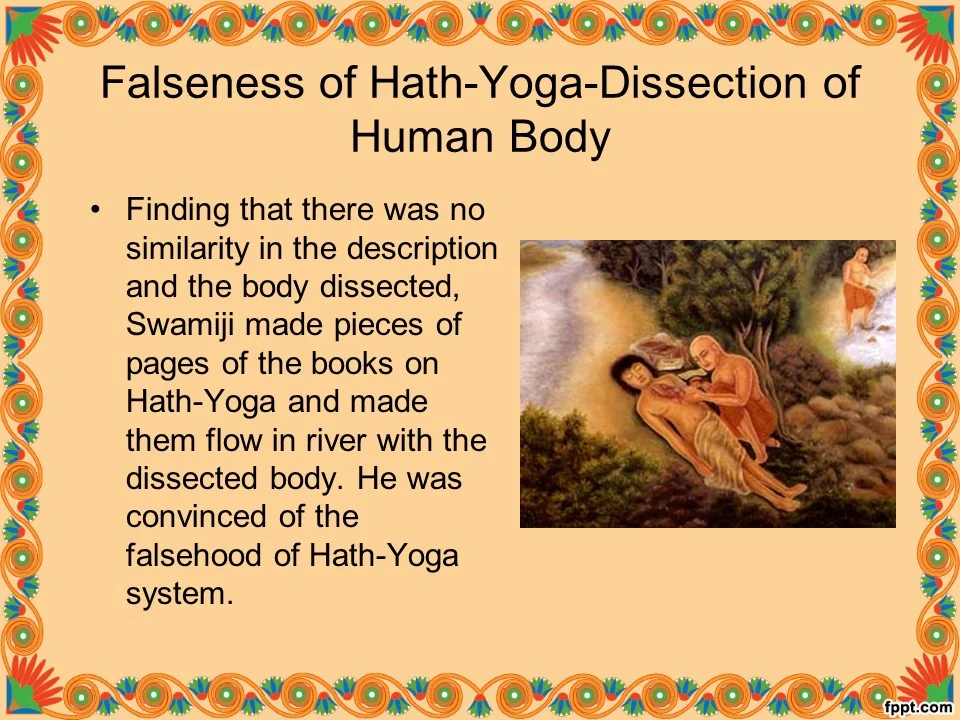
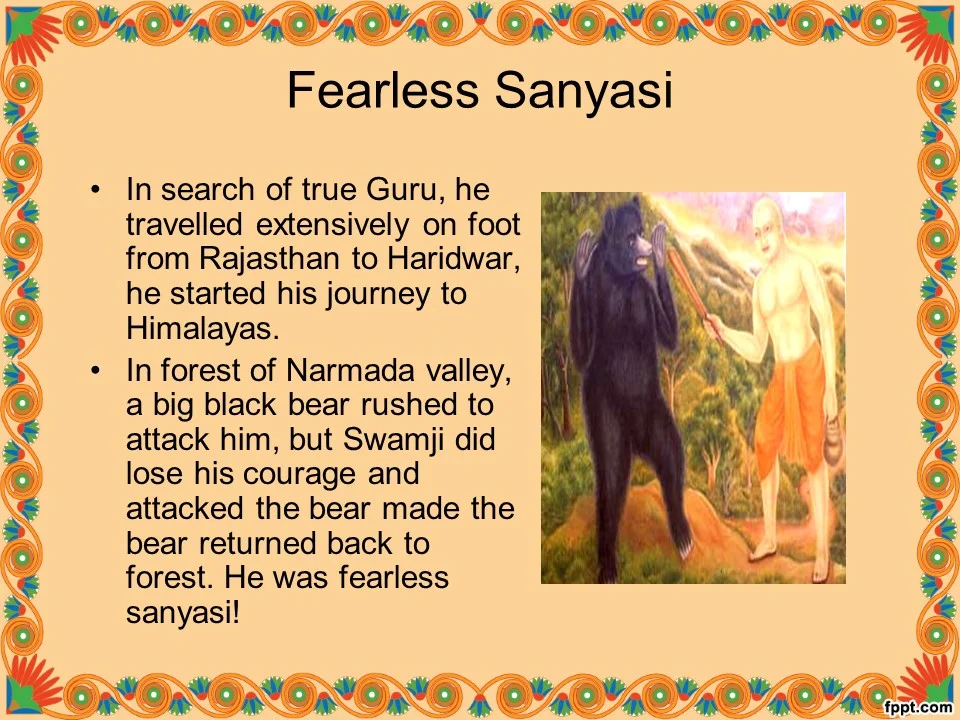
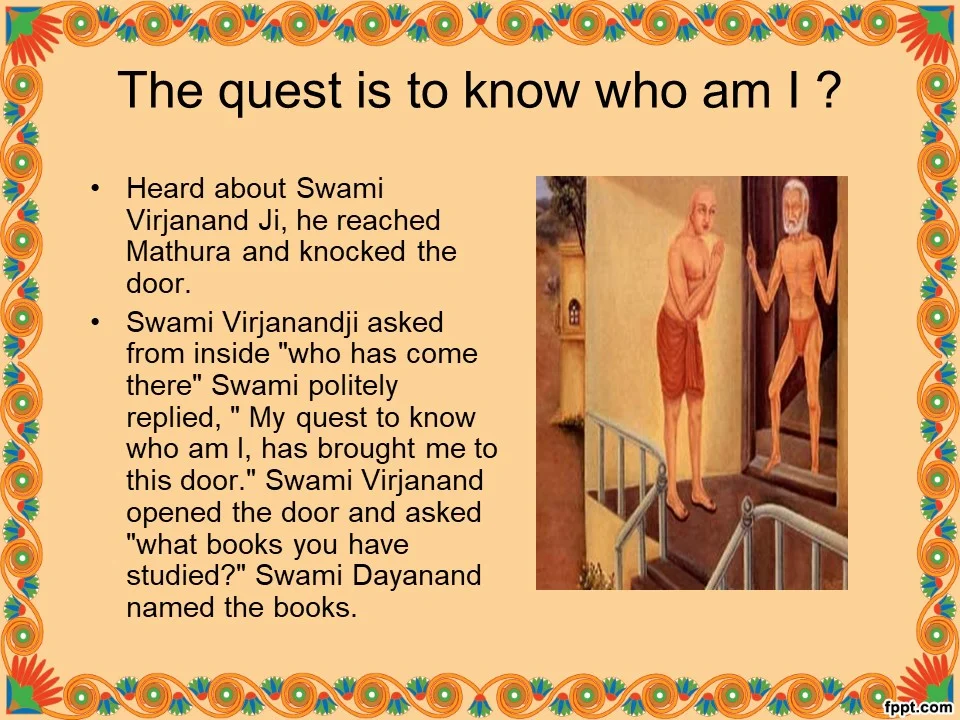
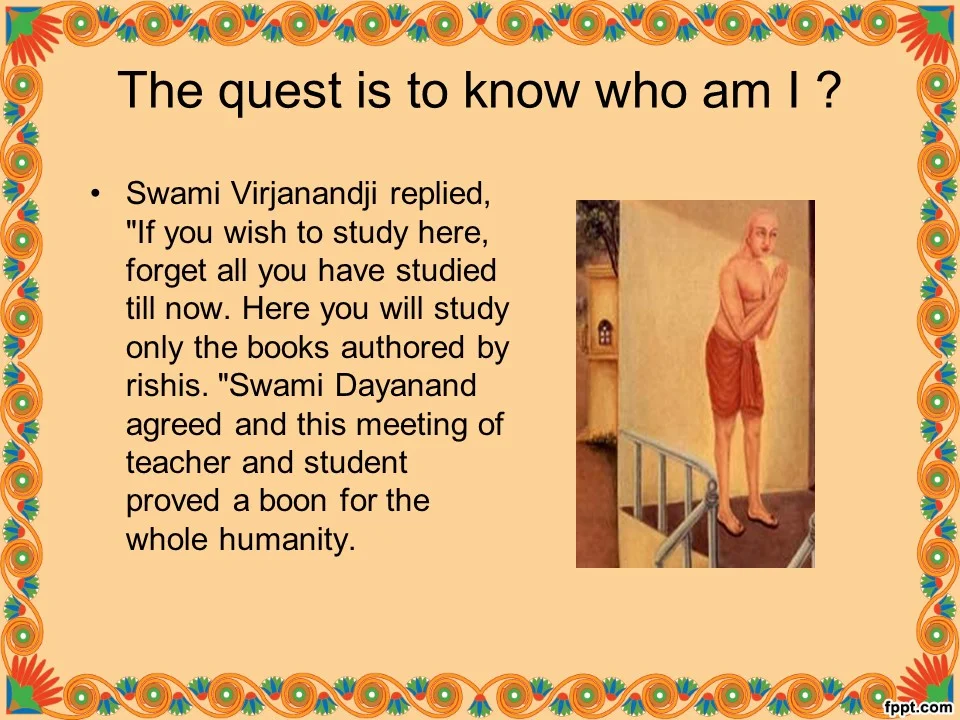
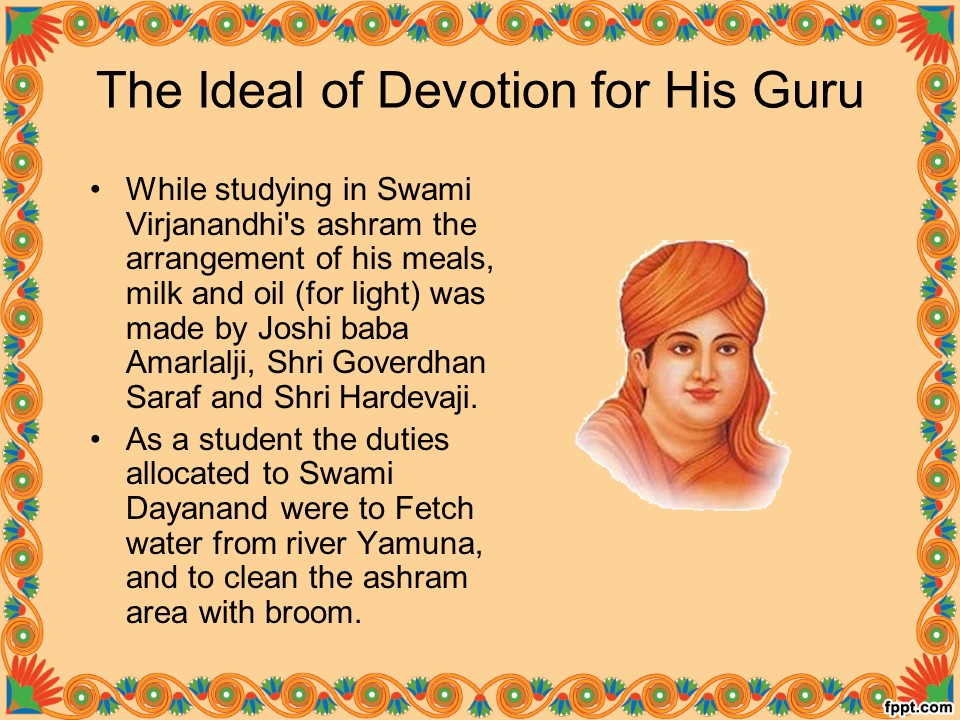
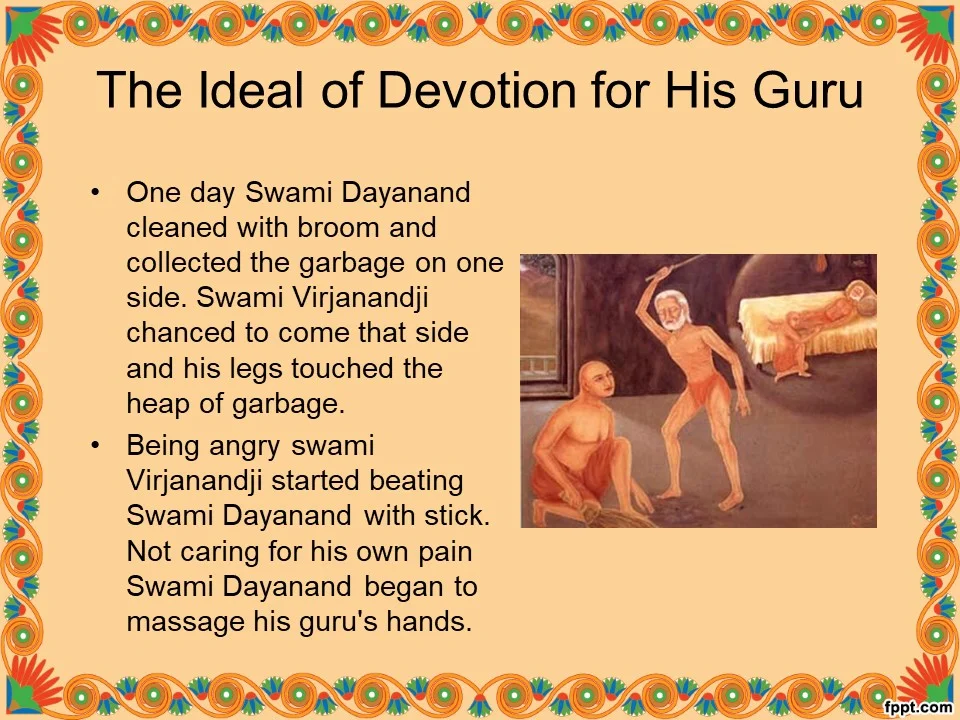
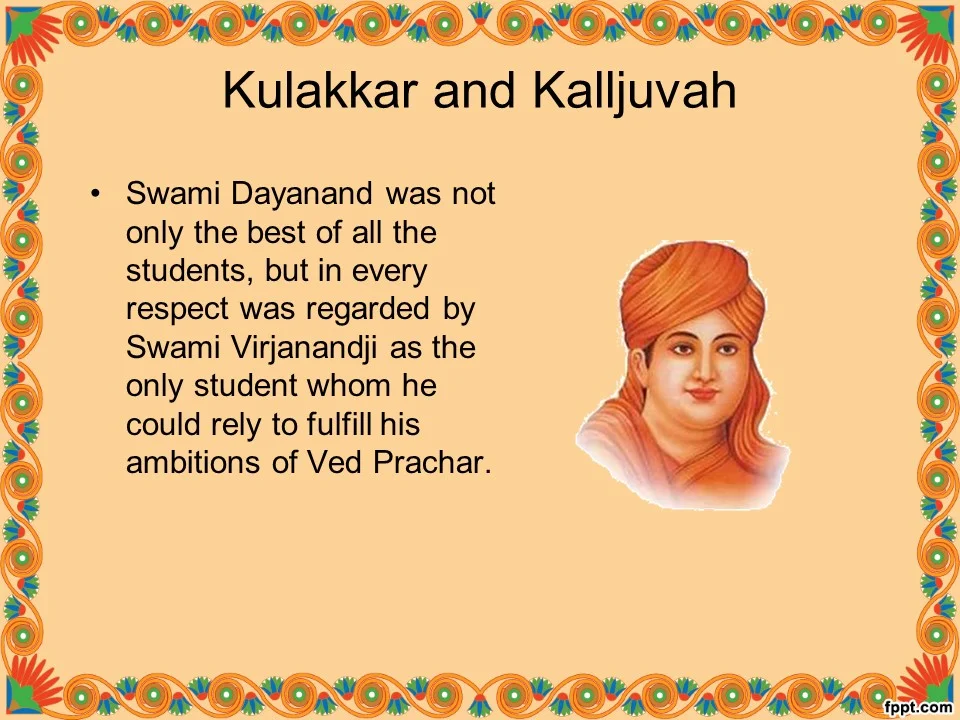
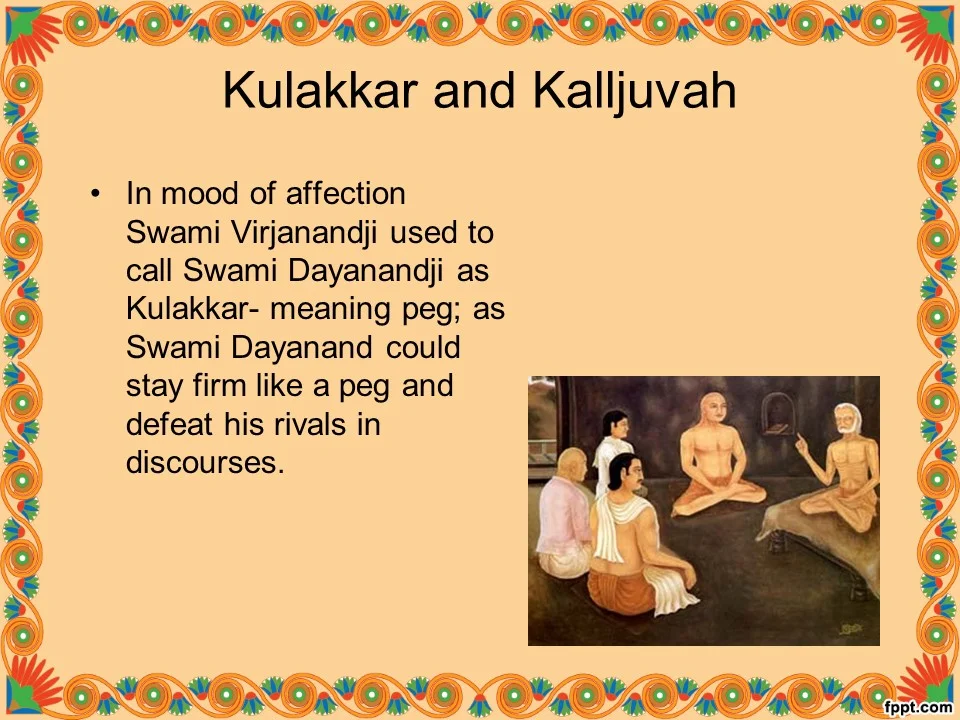
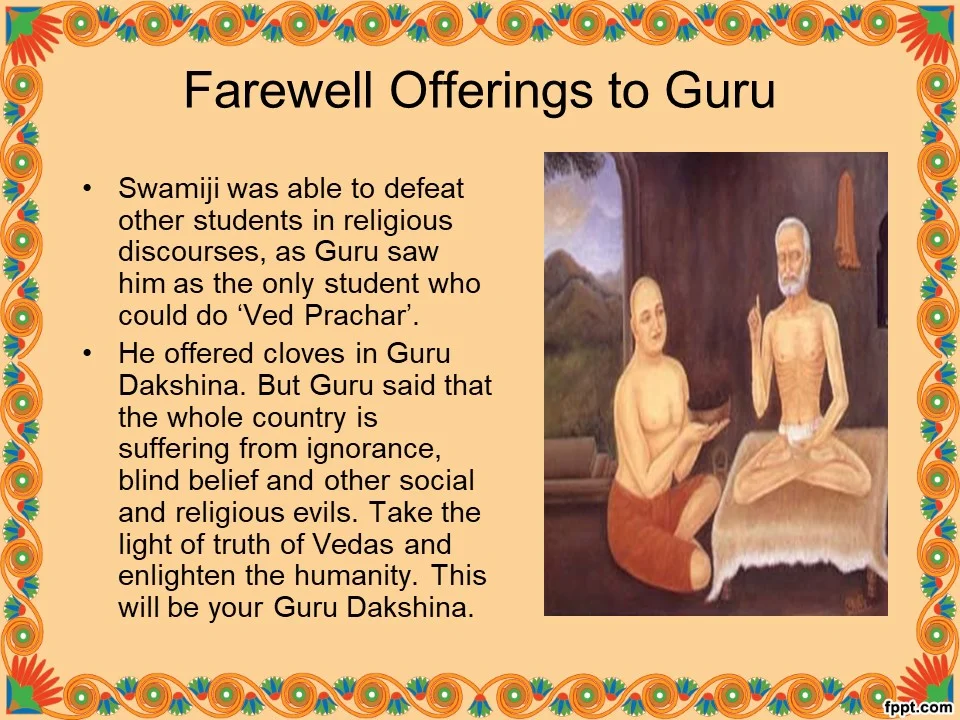
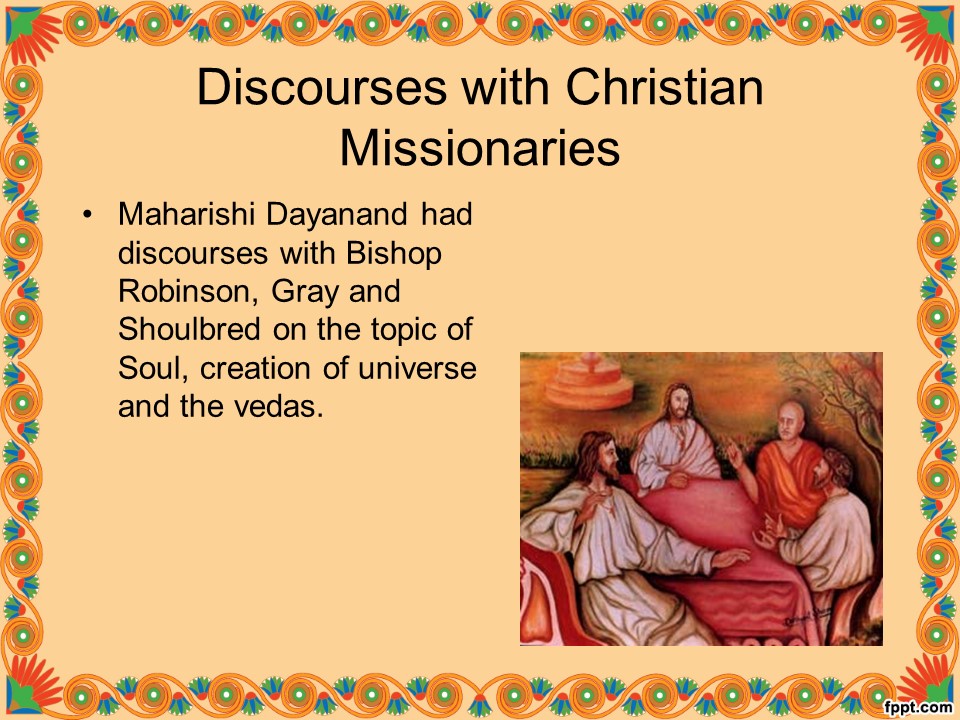
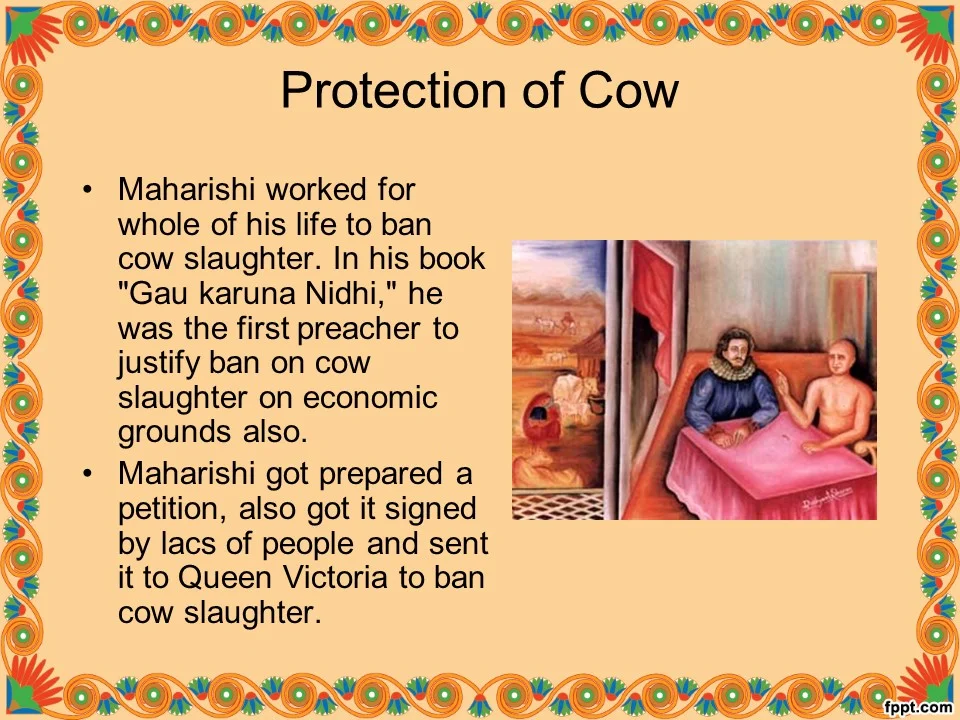
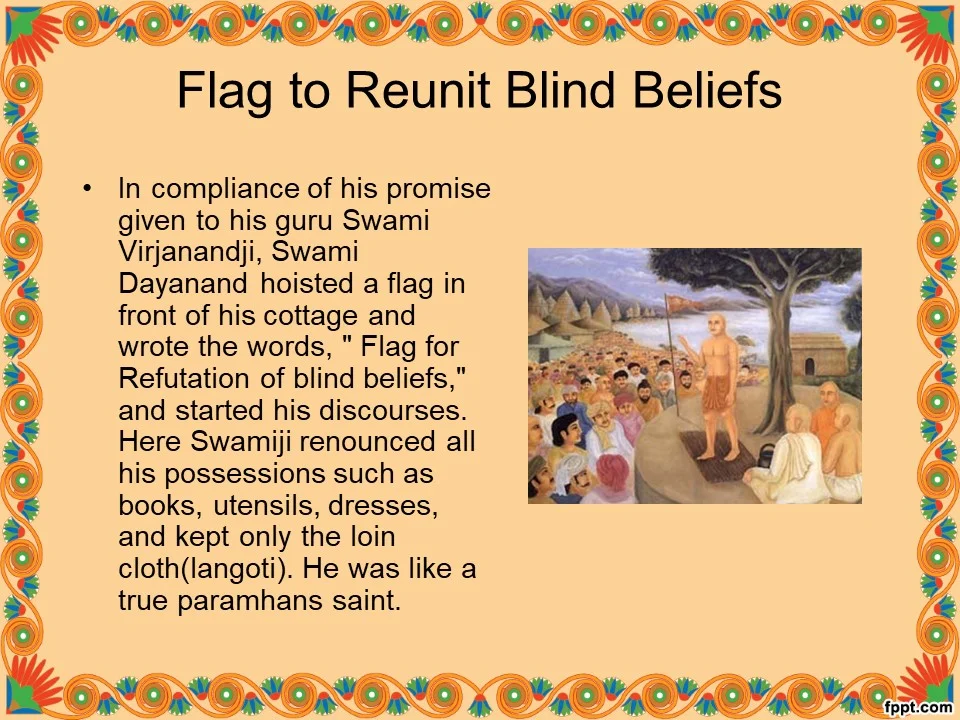
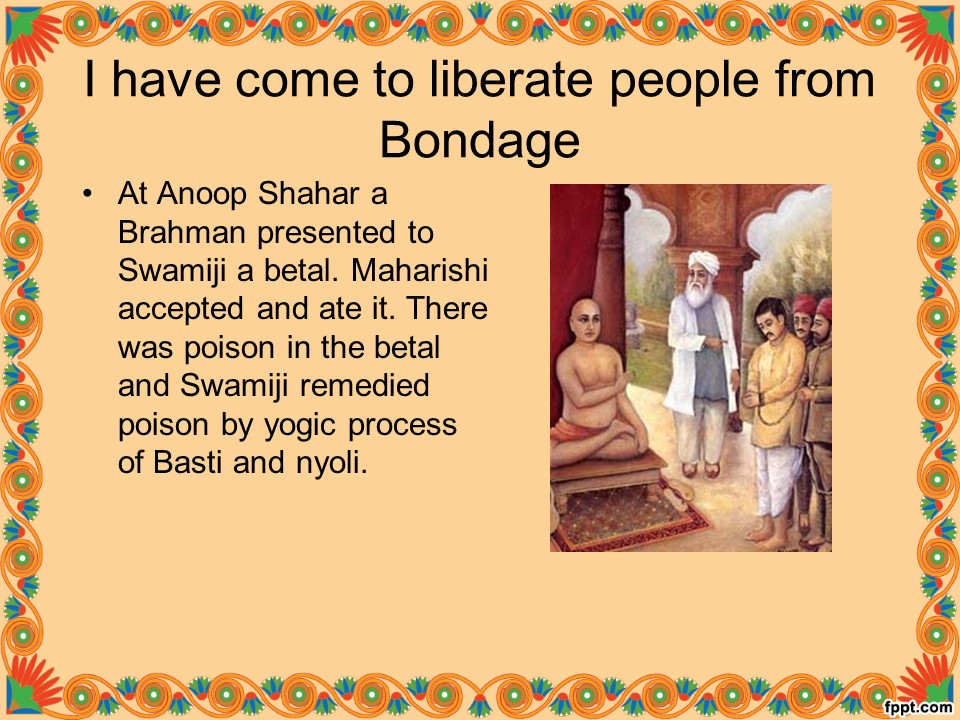
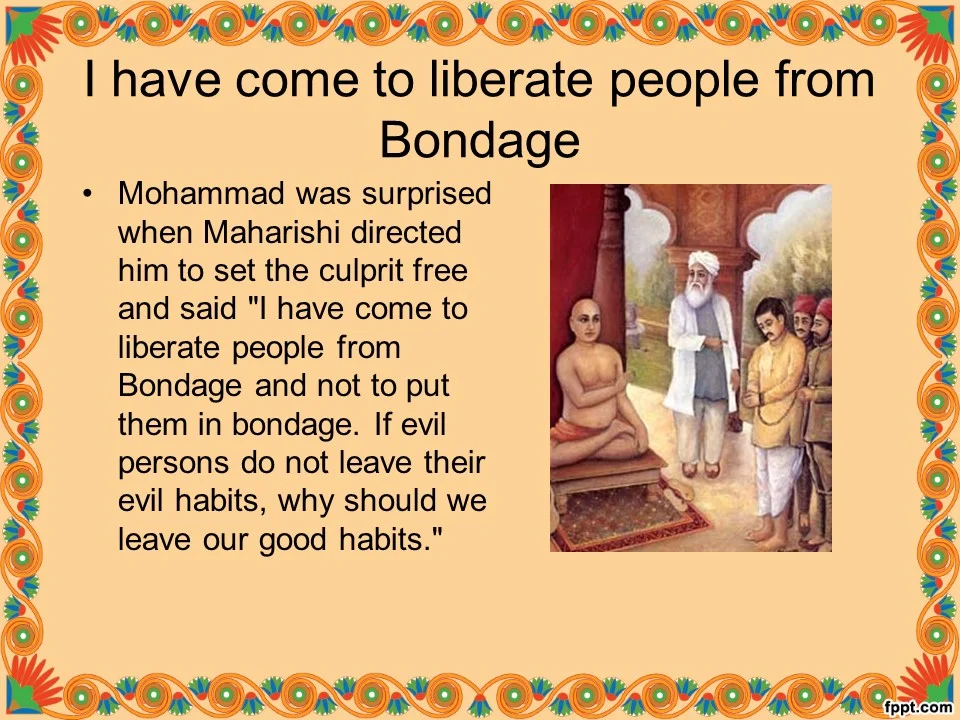
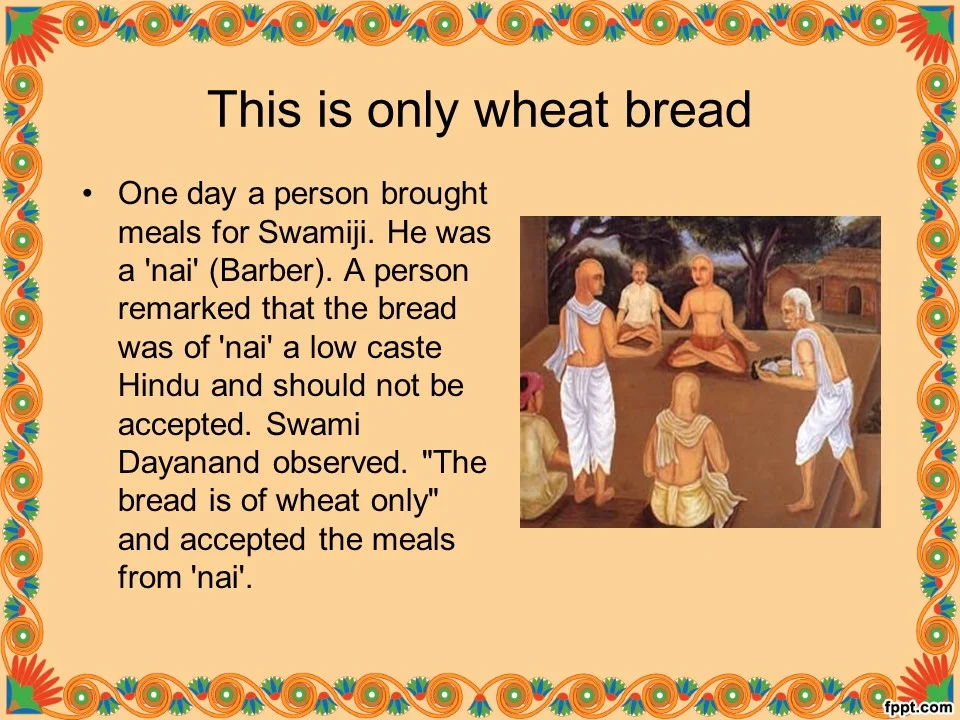
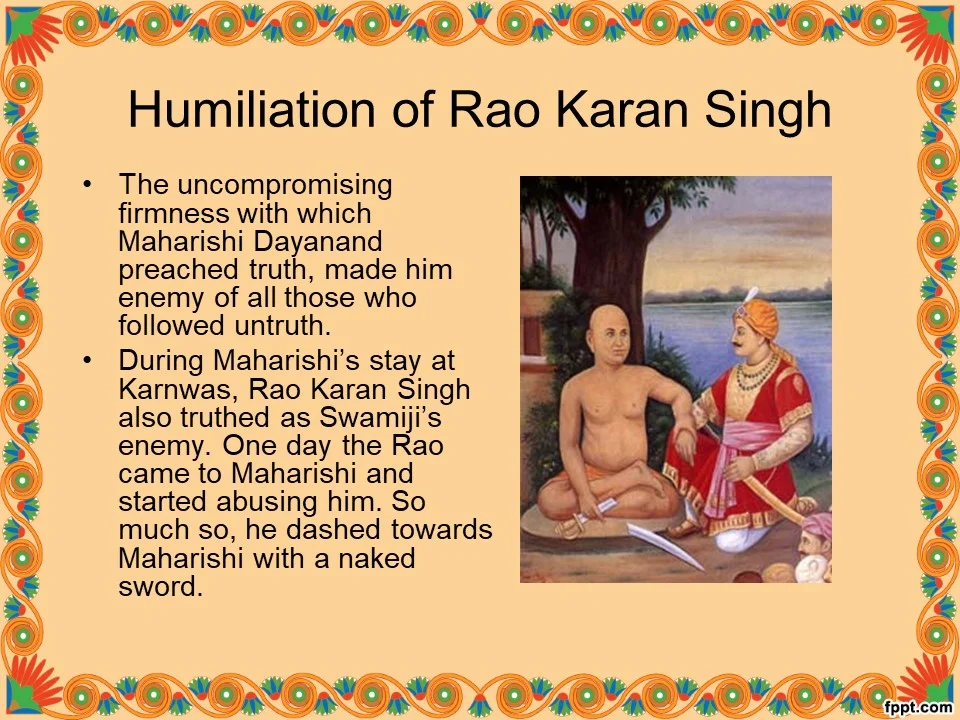
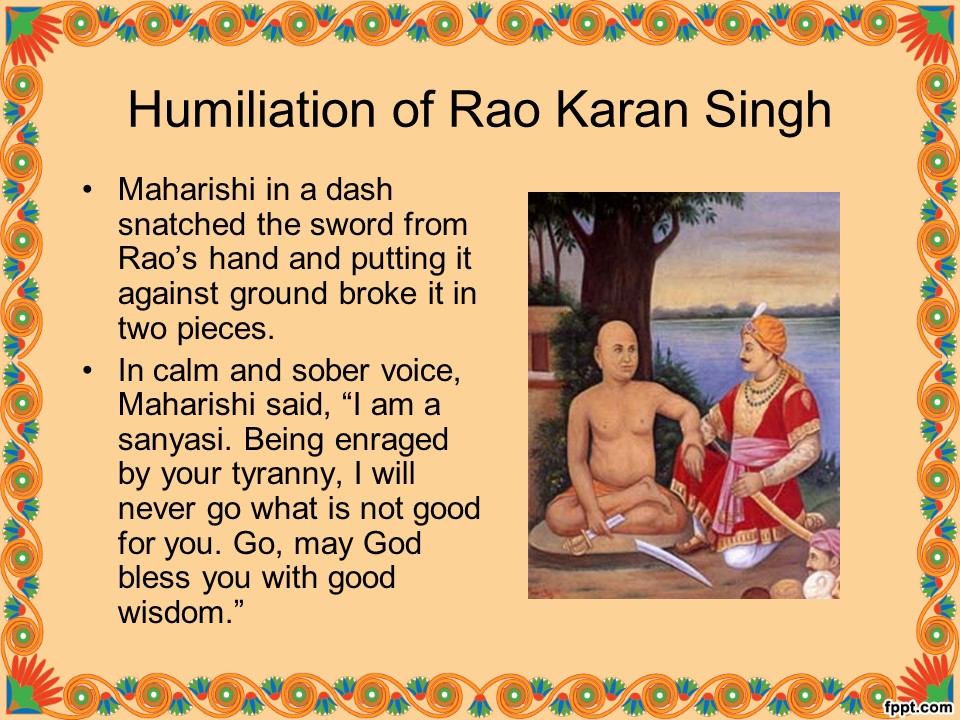
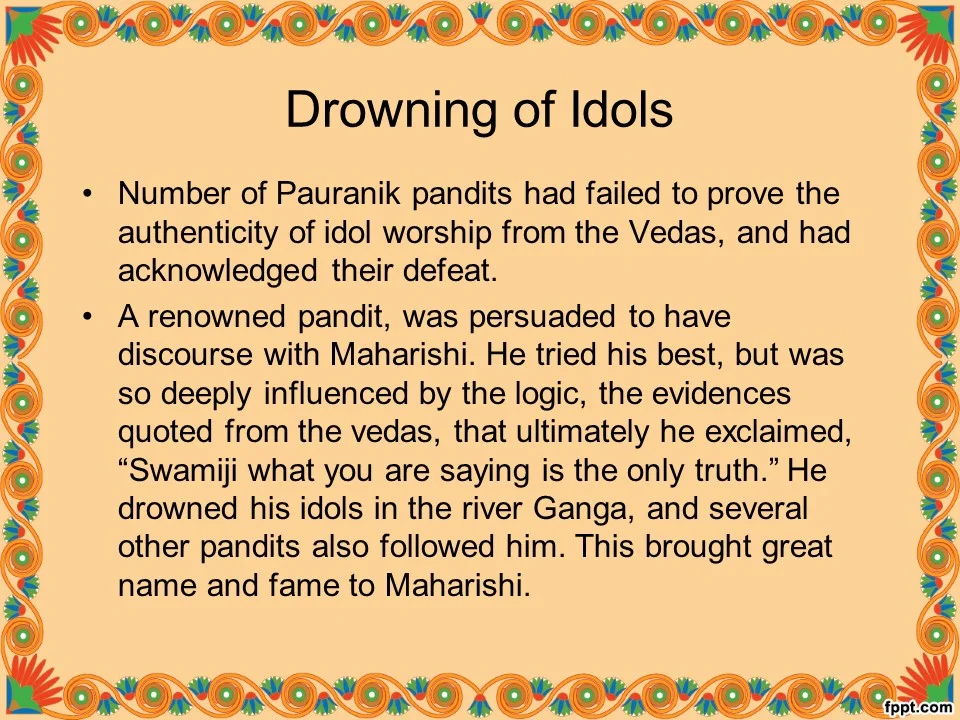
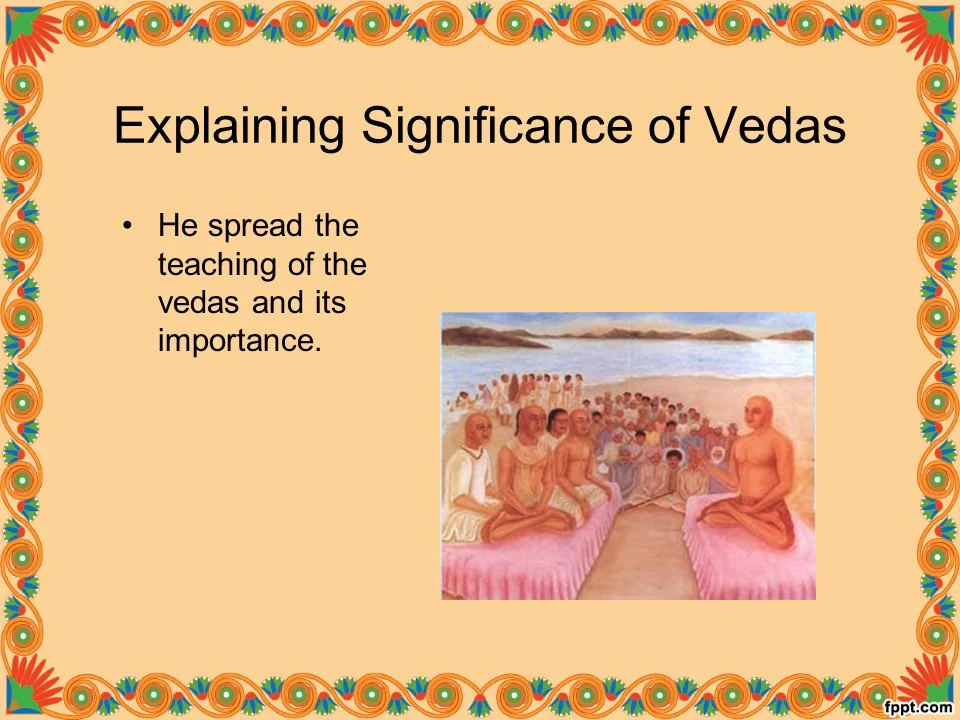
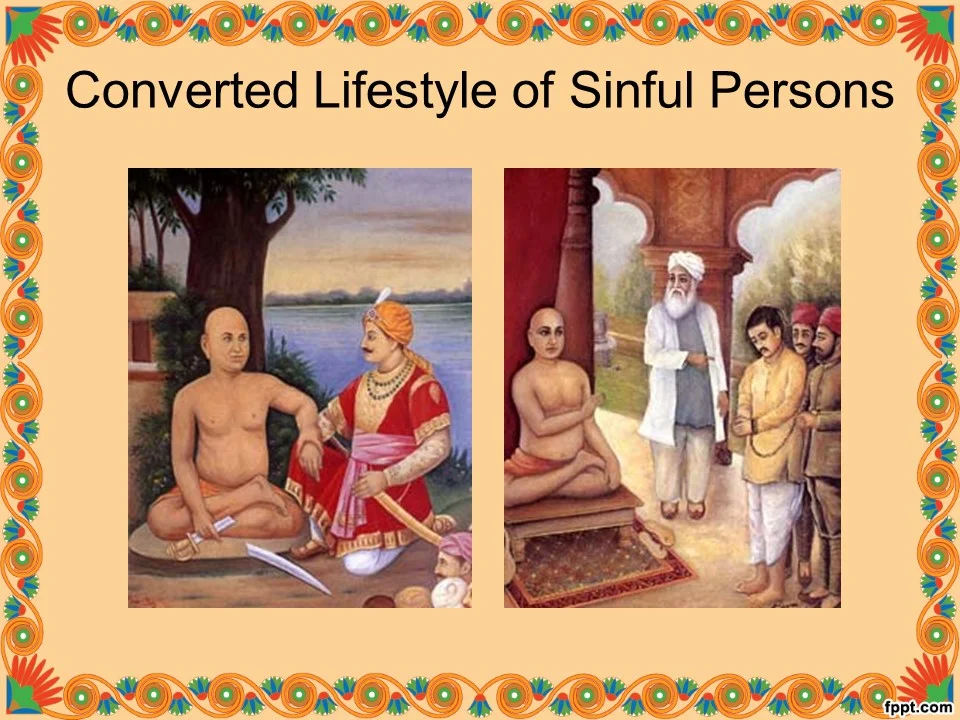
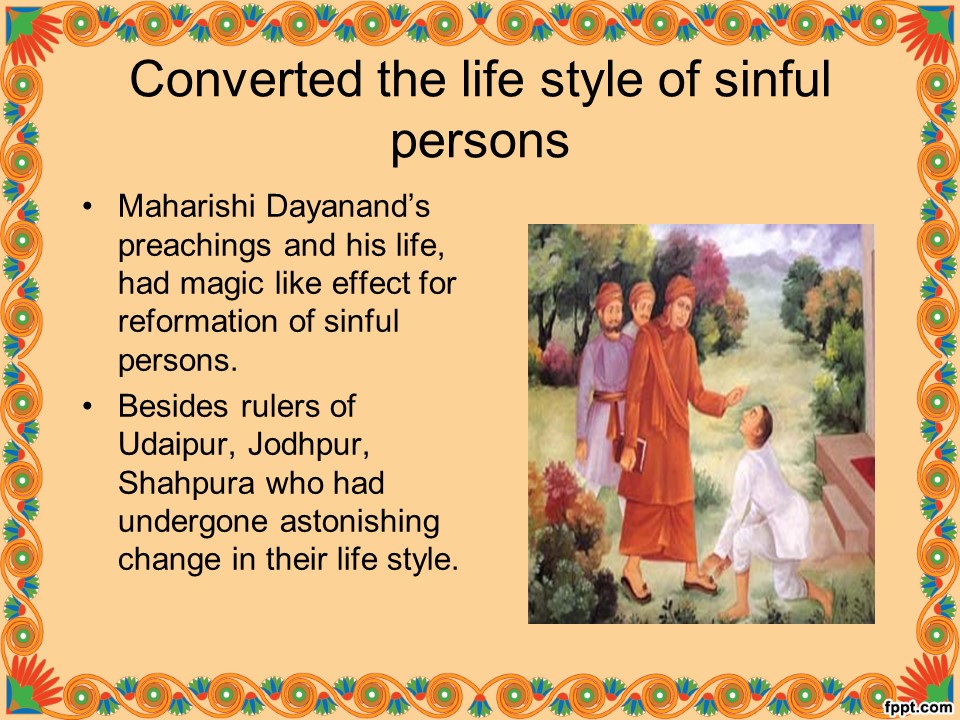
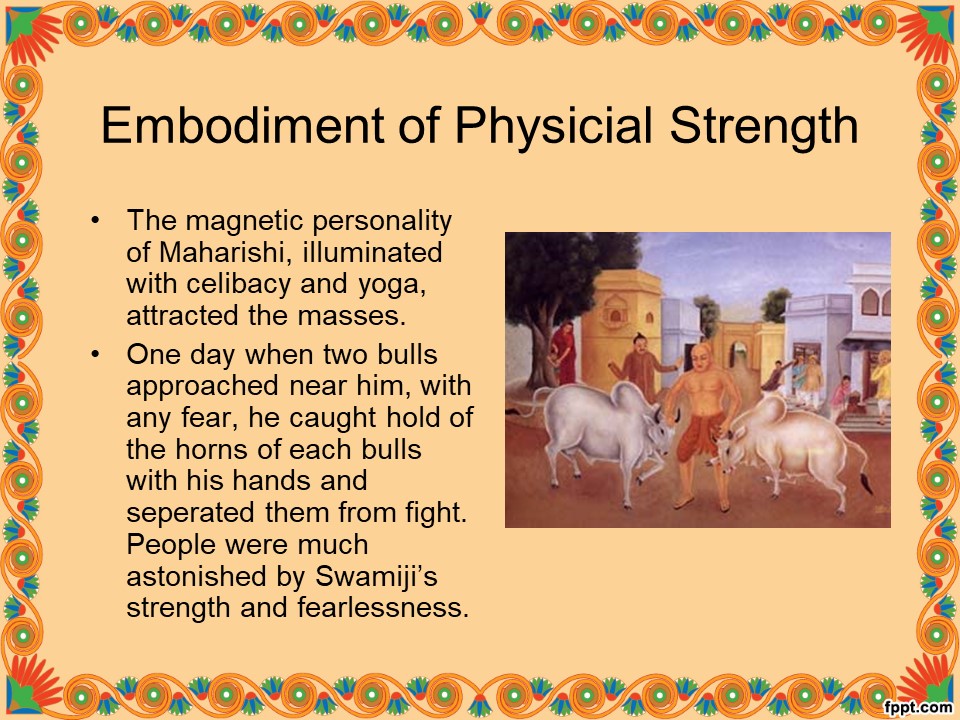
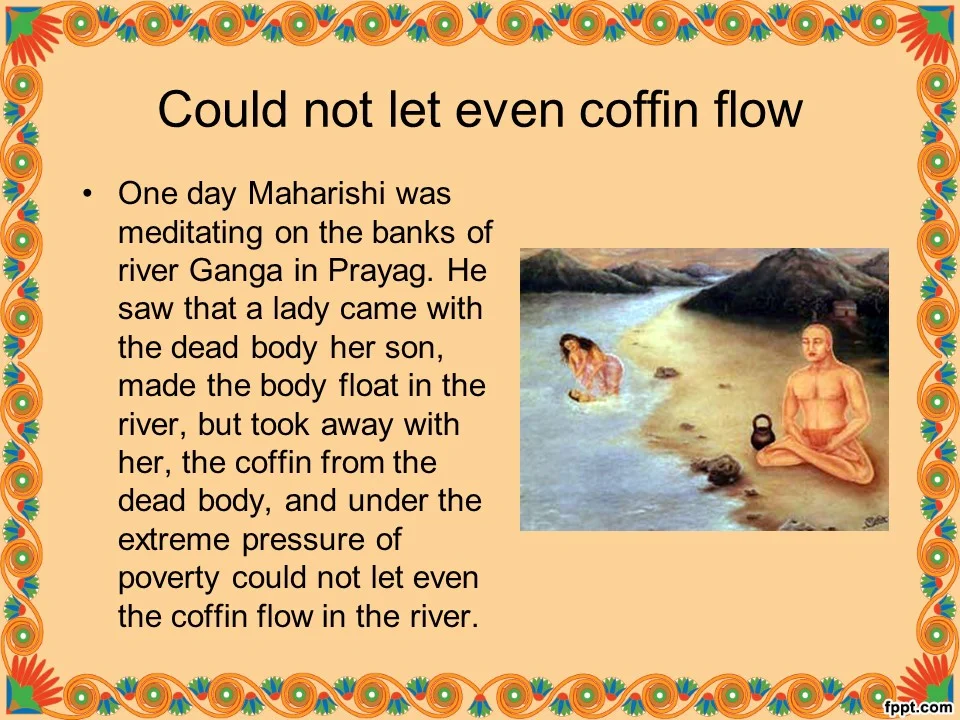
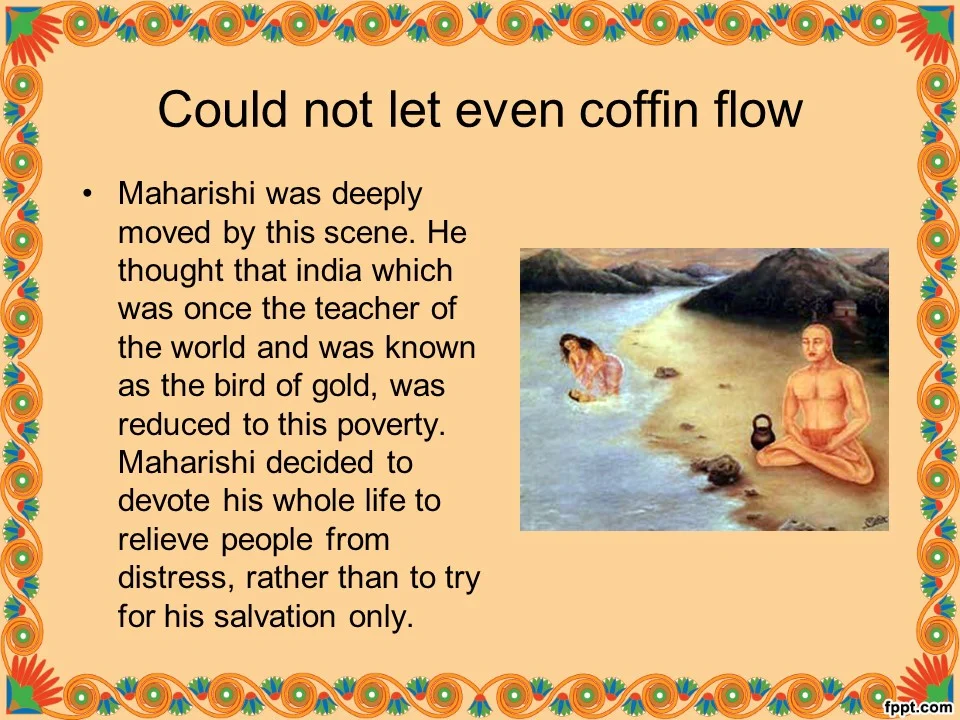
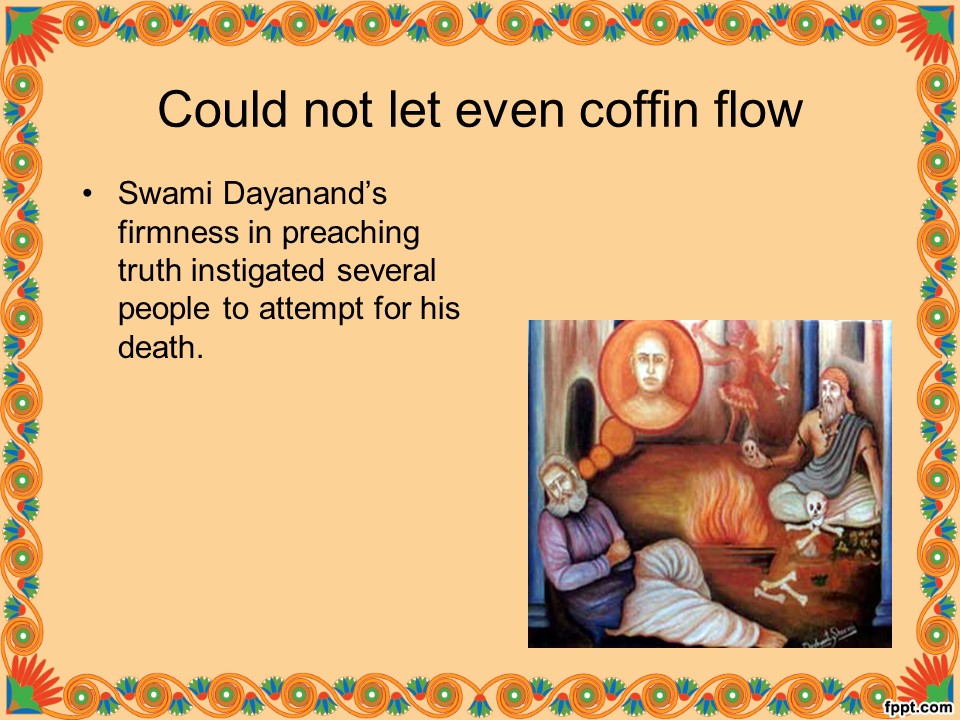
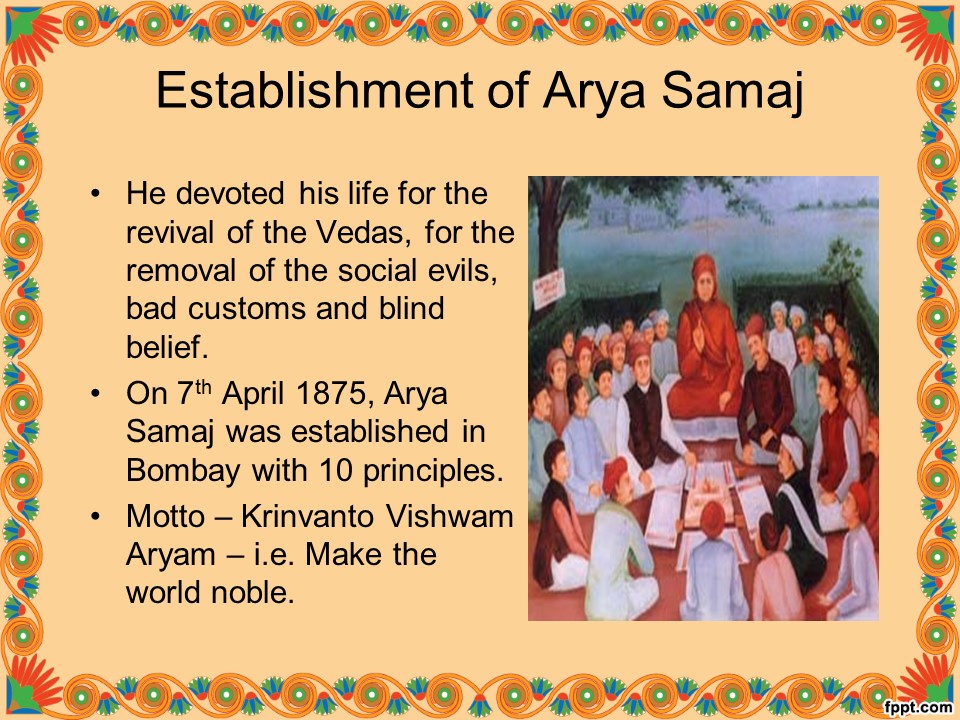
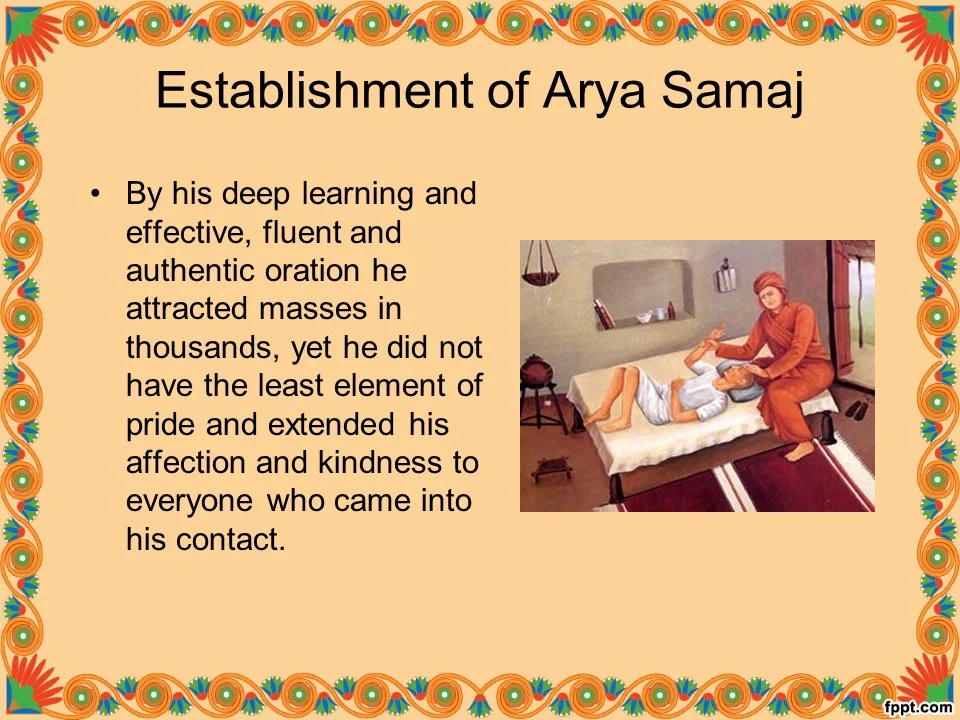
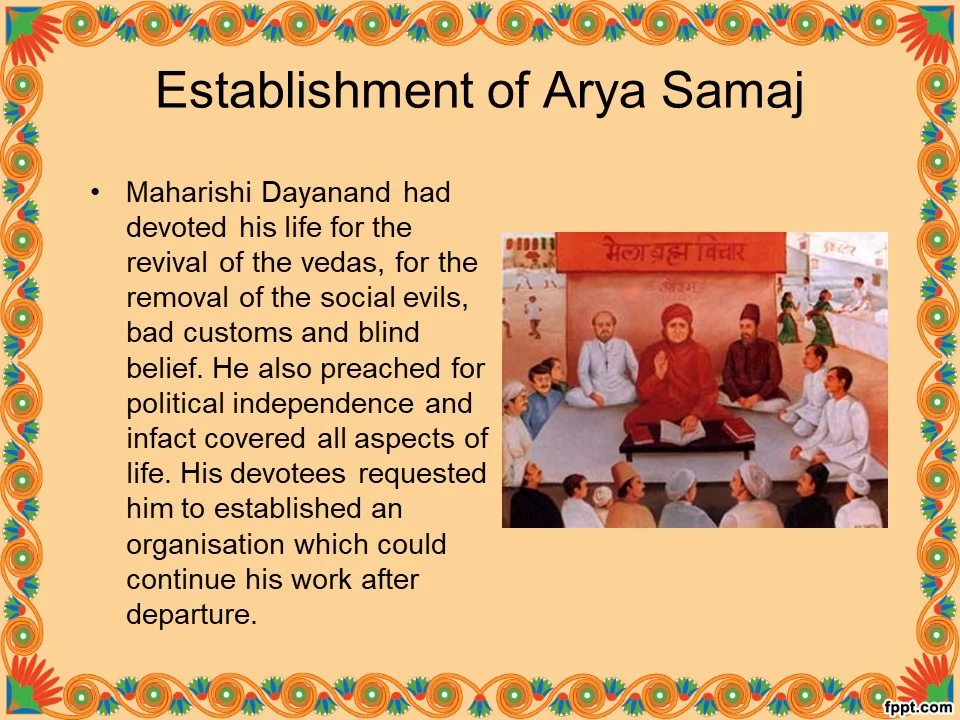
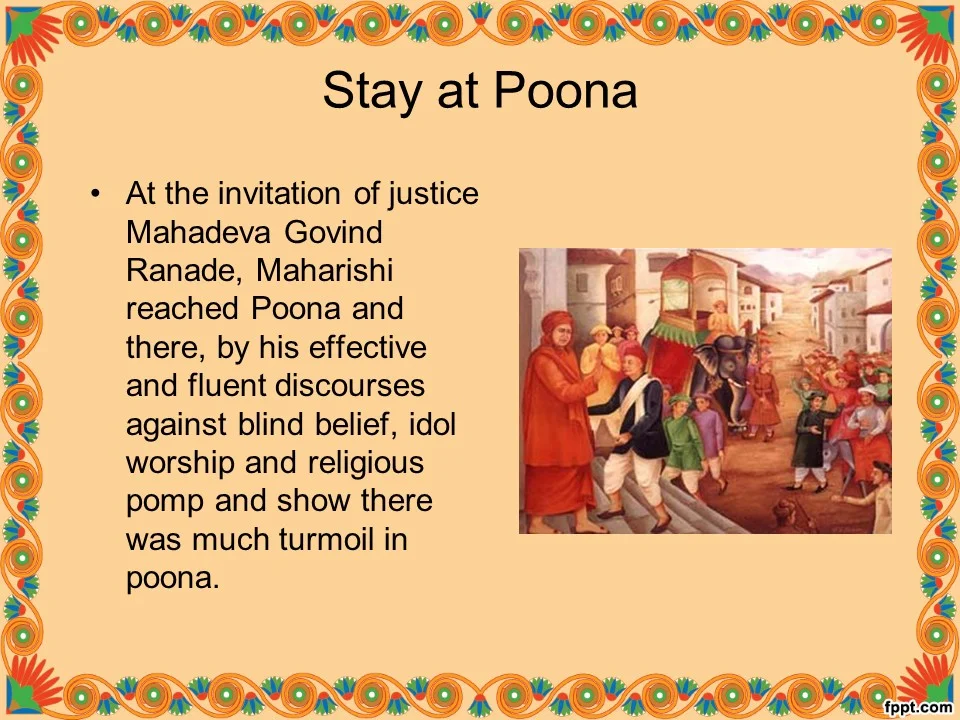
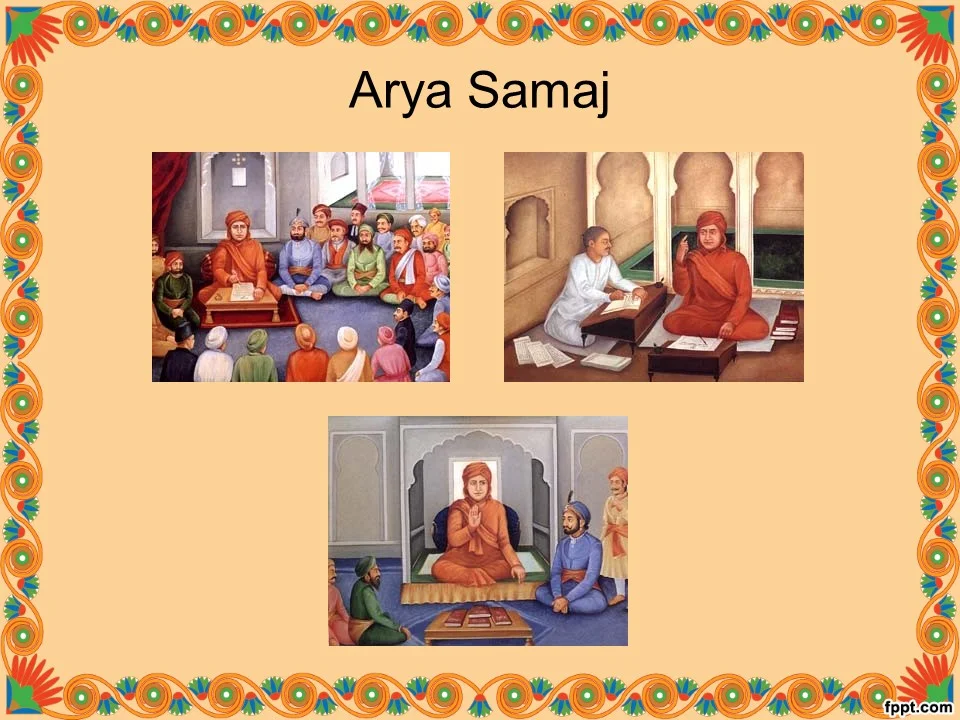
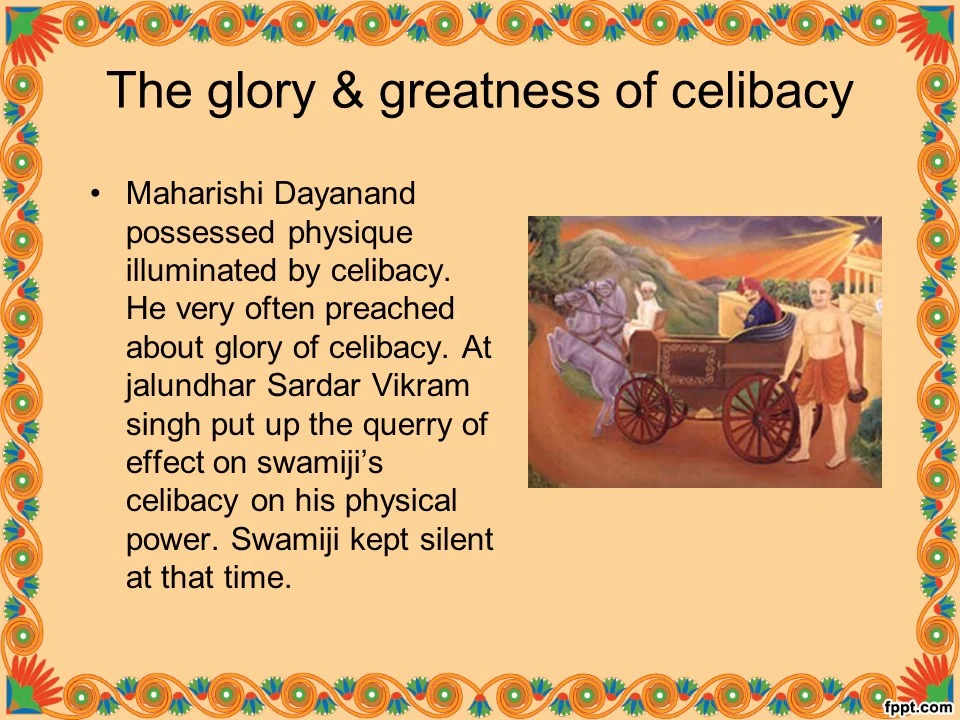
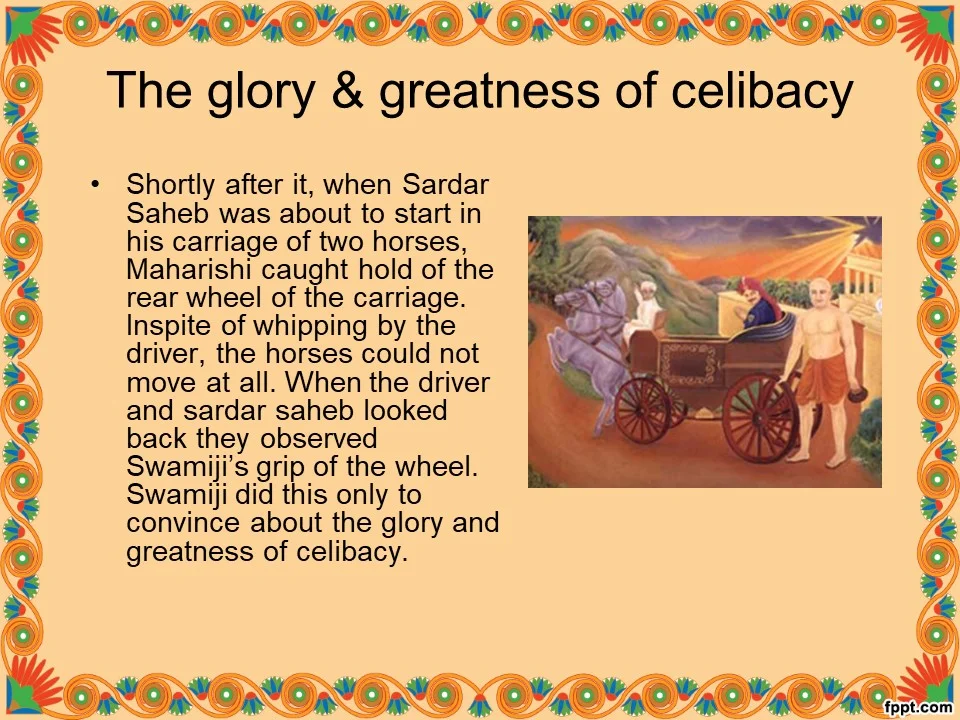
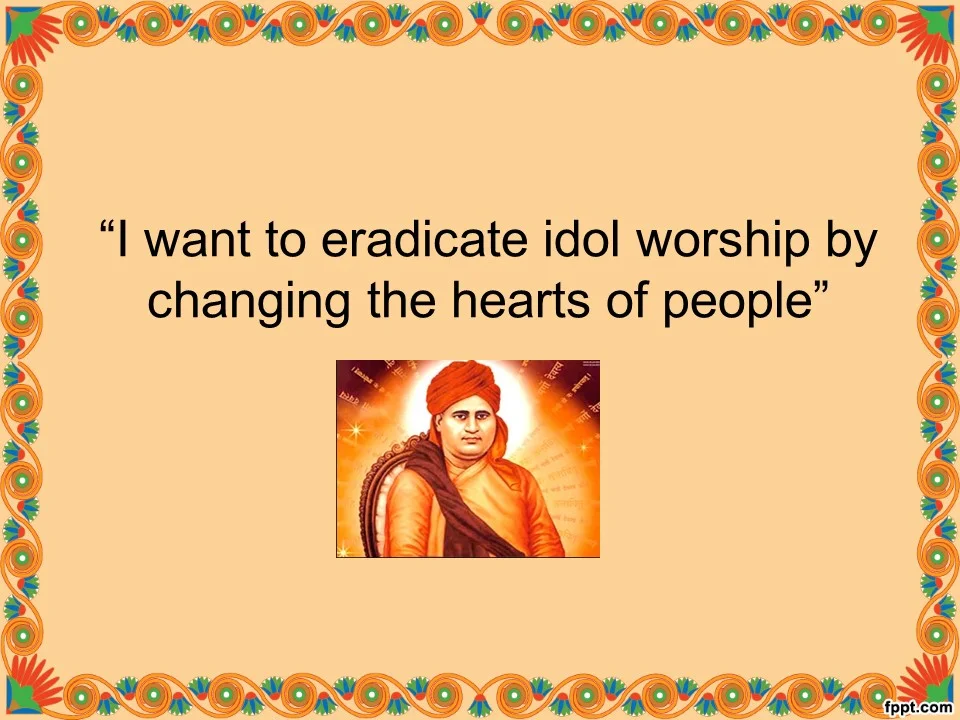
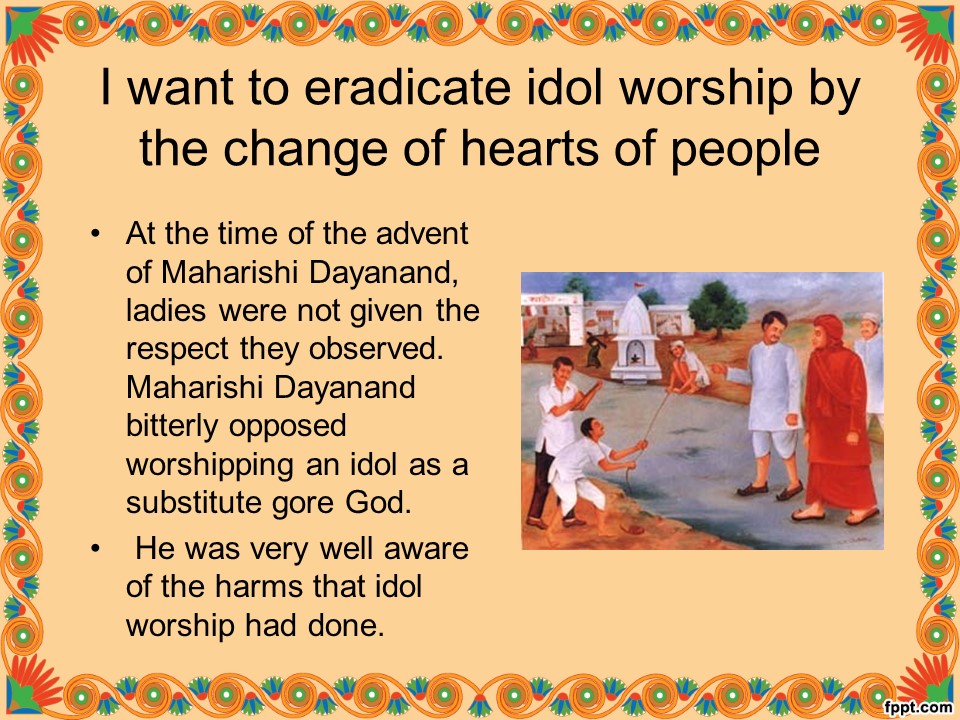
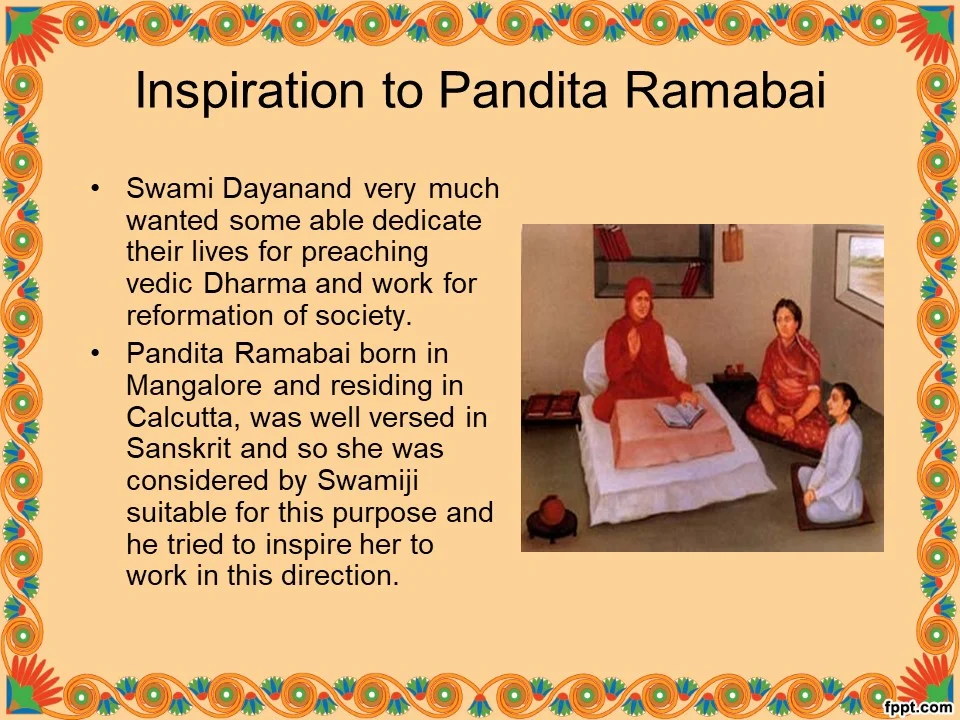
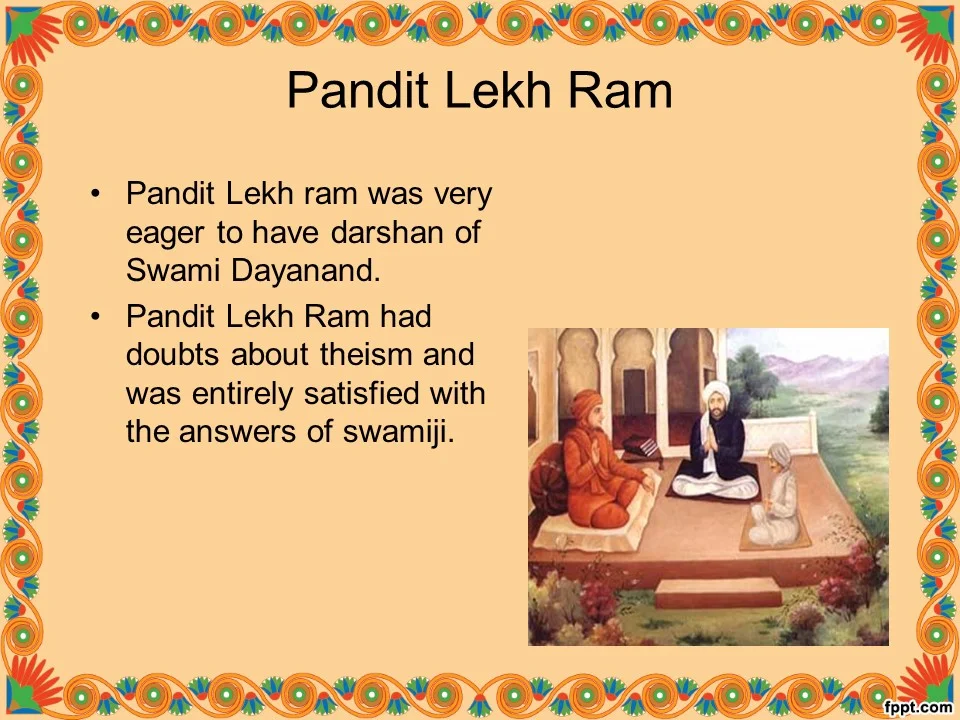
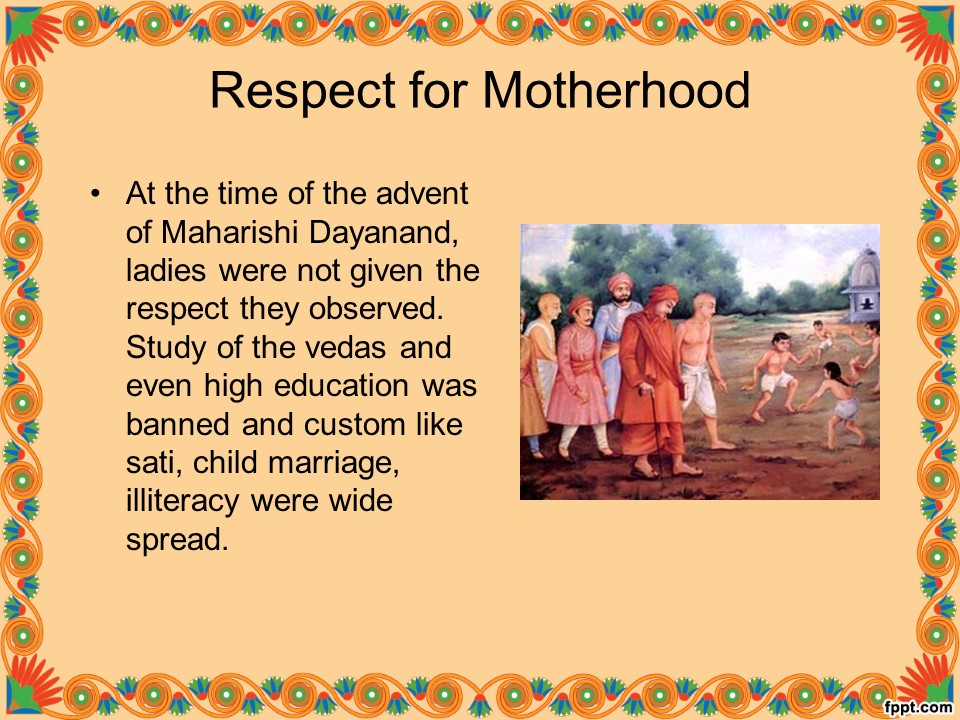
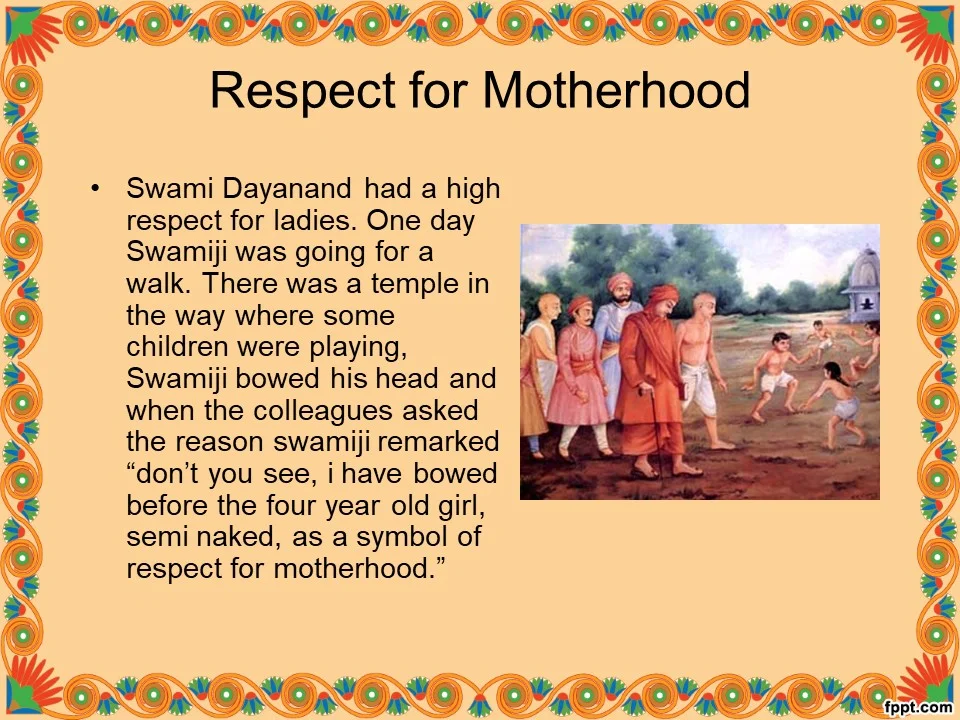
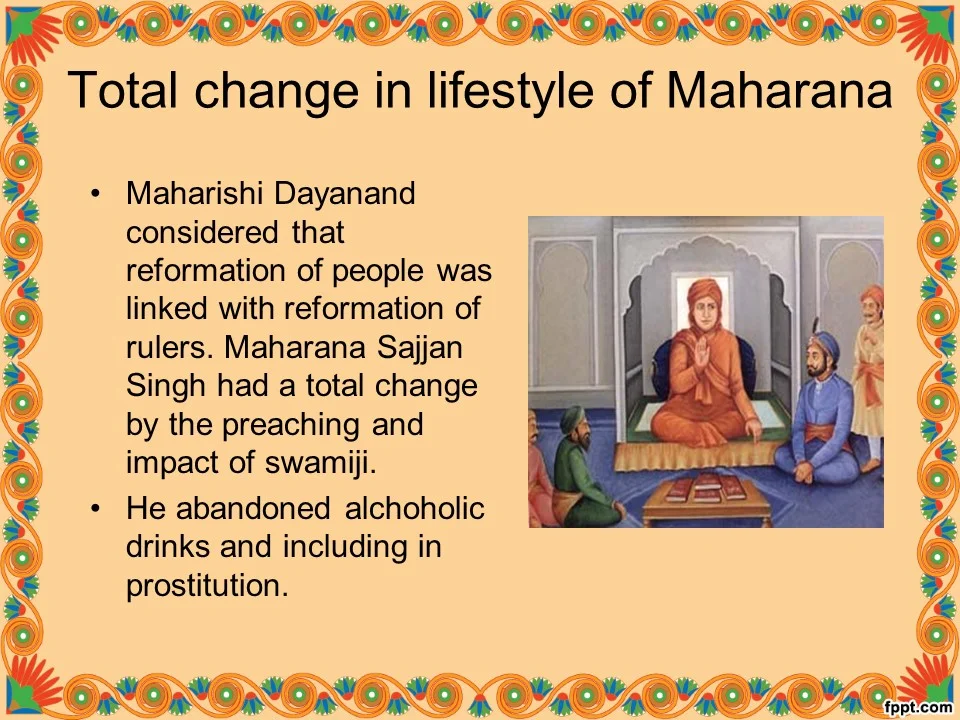
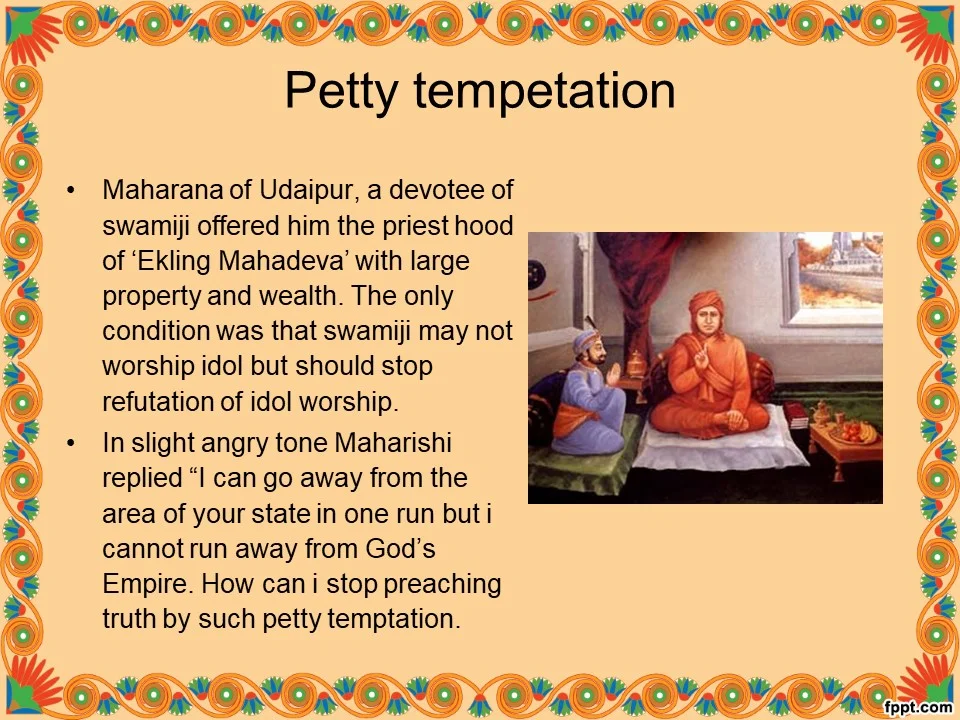
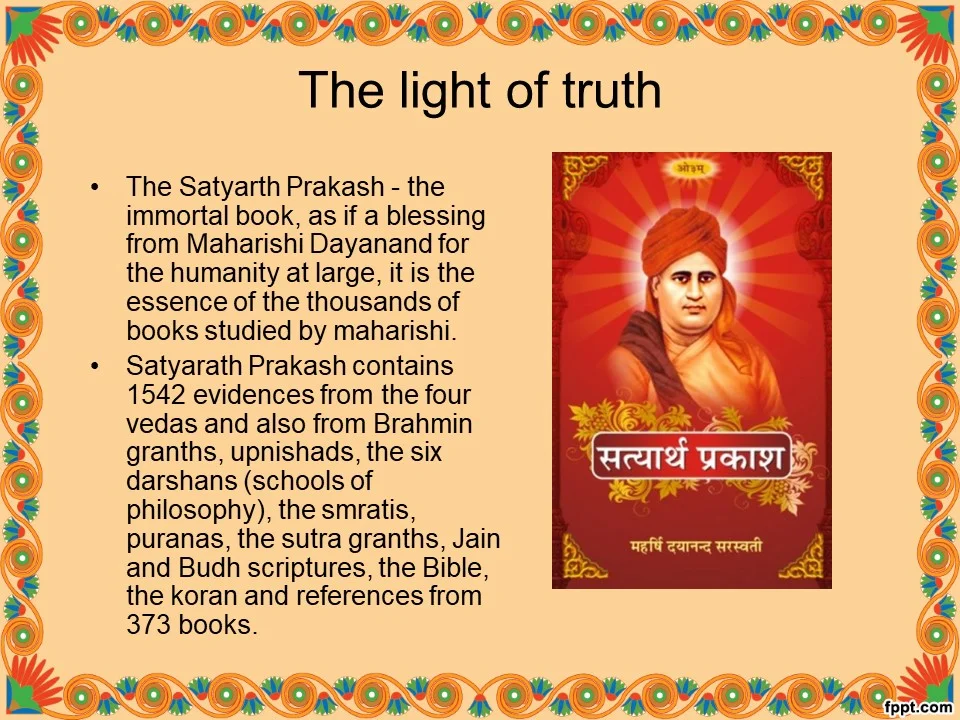
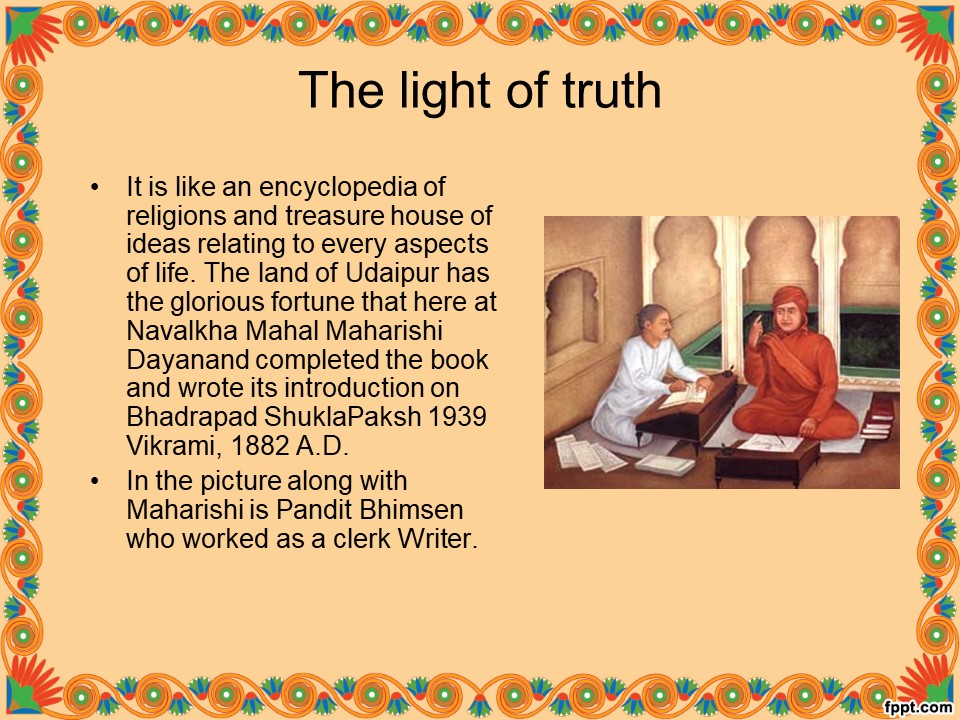
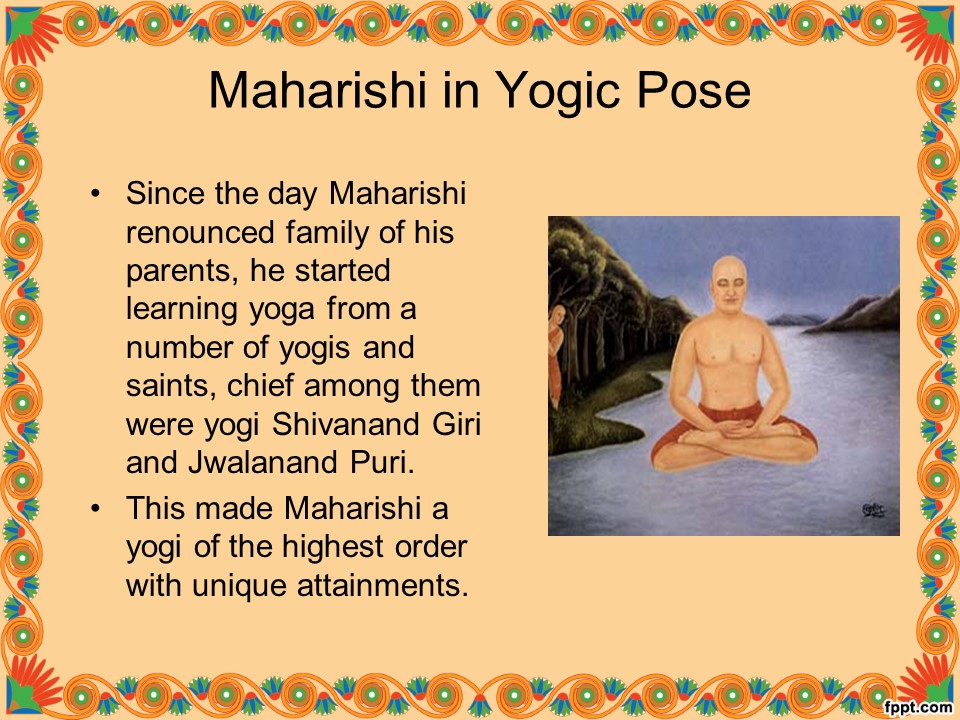
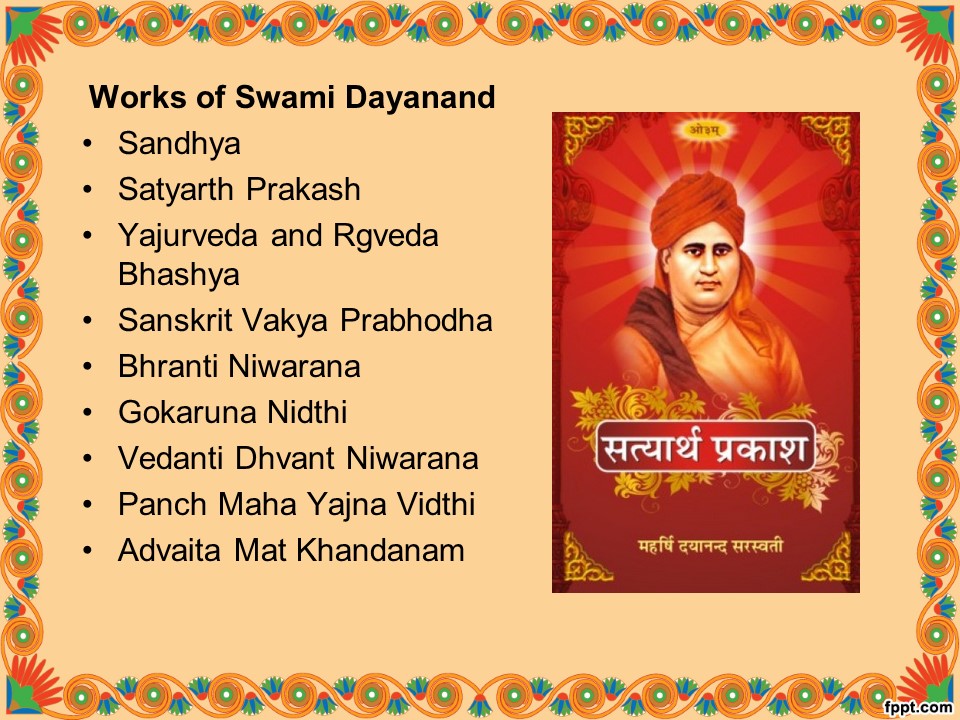
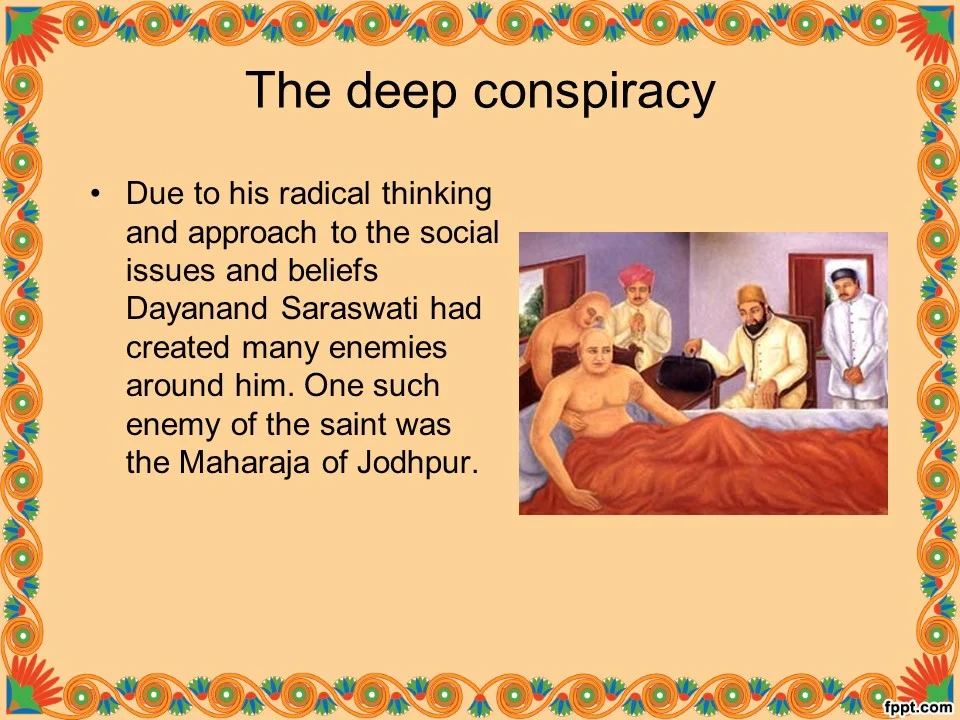
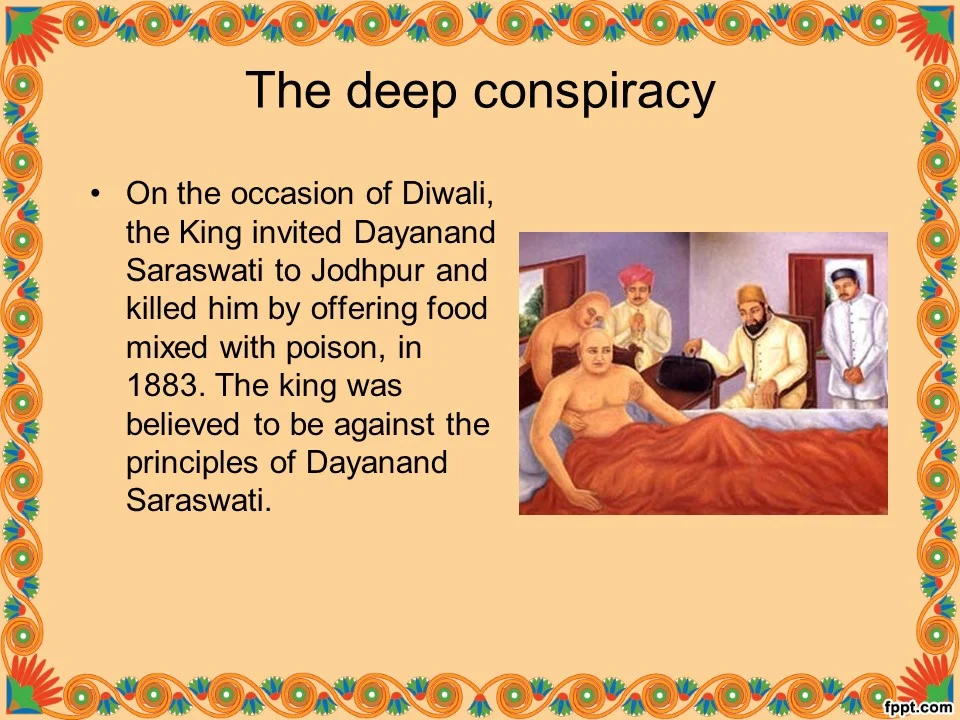
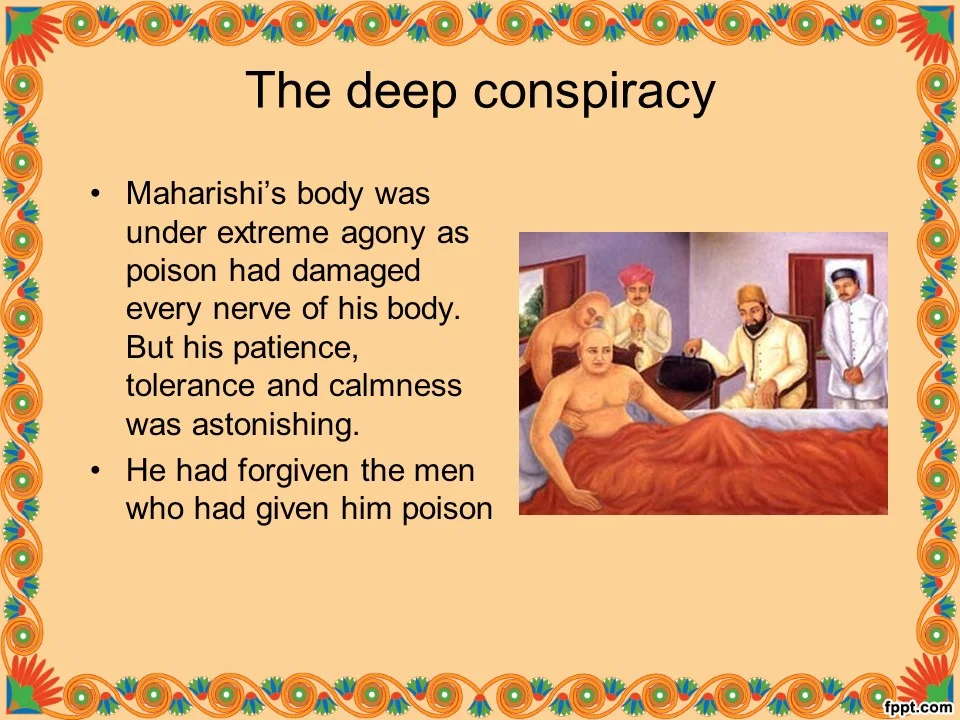
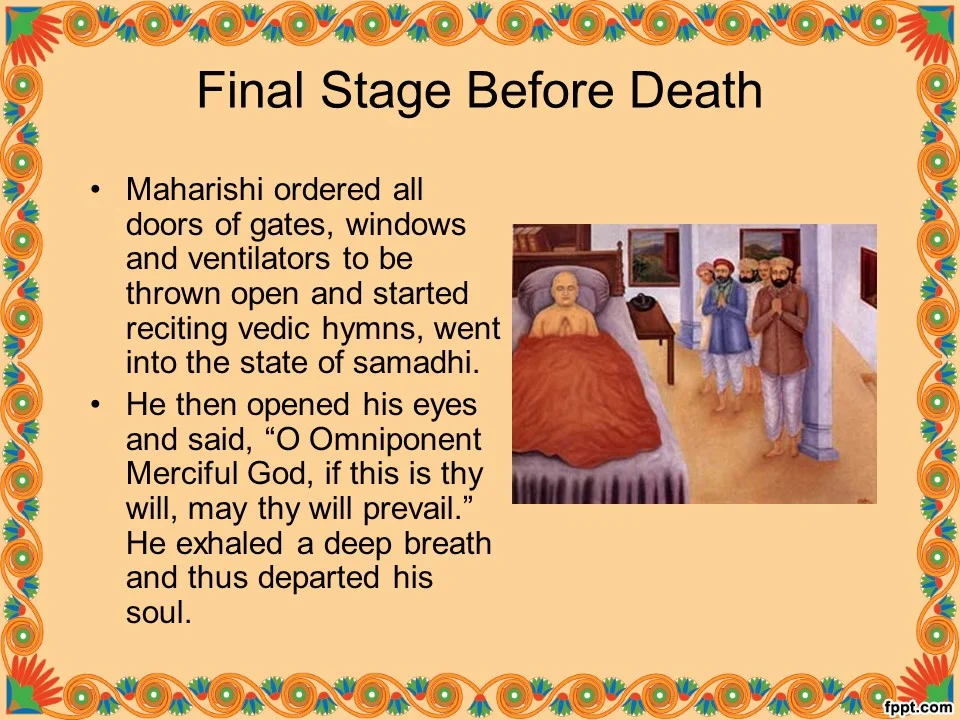
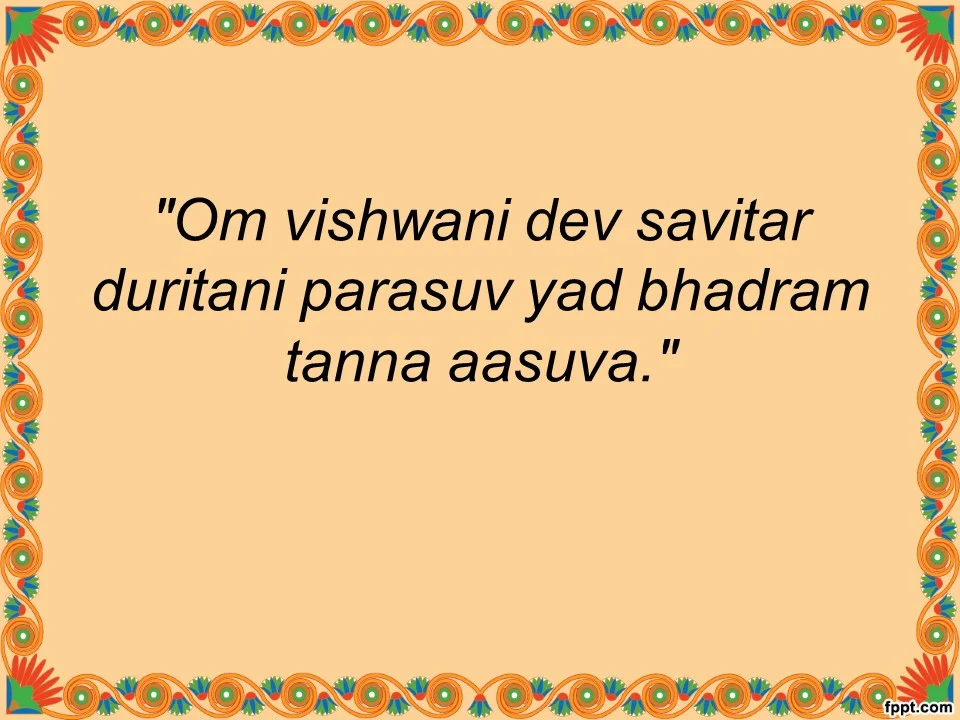
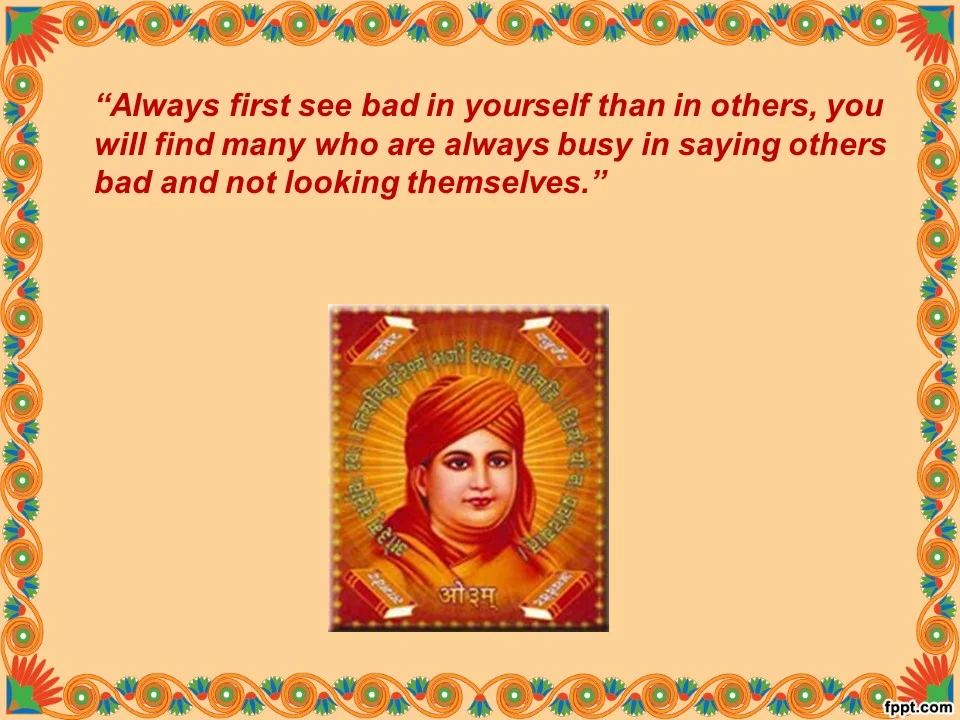
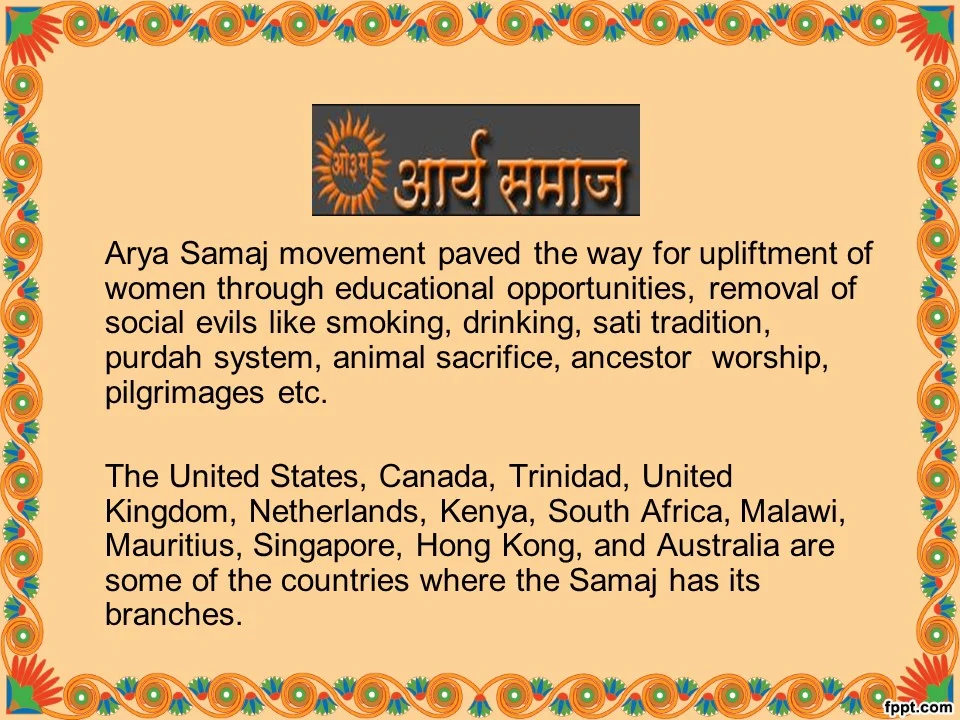
The message of Maharshi Swami dayanand - Back to the Vedas
Swami Dayanand was born on February 12, 1824 in Tankara in the western Indian state of Gujarat. At a time when Hinduism was divided between the various schools of philosophy and theology, Swami Dayanand went straight back to the Vedas as he considered them the most authoritative repository of knowledge and truth spoken in the "Words of God." In order to re-energize Vedic knowledge and reawaken our awareness of the four Vedas - Rig Veda, Yajur Veda, Sama Veda, and Atharva Veda - Swami Dayanand wrote and published a number of religious books, primary among them being Satyartha Prakash, Rig-Vedaadi, Bhasya-Bhoomika, and Sanskar Vidhi.
Maharshi completed his vedic studies under Swami Virjanand in 1864. Thereafter, he travelled across India till 1874 AD for Vedic propagation and learning. Maharshi’s first major authorship was Panchmahayajya Vidhi in 1874 AD. The Paropkarini Sabha located in the Indian city of Ajmer was founded by the Swami himself to publish and preach his works and Vedic texts in 1882.
Early Life
Moola Shankar was Dayanand's original name; he was also called Dayaram. He acquired the name "Dayanand" when he entered sannyas (to renounce the worldly possessions, to forsake family ties and become a sadhu). Moolshankar was born in 1824 in a small town called Tankara in the state of Gujarat. He was from an Audichya Samavedi Brahmin (a caste whose primary duty was to take care of temples and religious obligations) family. Moolshankar was the eldest of five children. His education began at the tender age of five years and by age eight Moolshankar had mastered Devanagari script (which was used for Sanskrit) and was endowed with the sacred thread for beginning the studies of the Vedas. By the age of 14, he had gained knowledge of the Yajurveda and hymns from the other Vedas.
200th Birth Anniversary of Swami Dayanand Saraswati, video released by Ministry of Culture, Govt of India
Movie in English by Doordarshan
Documentary by Doordarshan
Maharshi Swami Dayanand (1824-1883)
Moolshankar's father, Karshan Ji was a devotee of Lord Shiva and wished for his son to follow in his footsteps. On the night of Maha-Shivaratri (the great night of Shiva), Moolshankar accompanied his father to the temple where all the devotees gathered in front of a Shiva idol to keep an all night vigil. One by one the devotees fell asleep except for Moolshankar who was taught that if you fall asleep on that particular night then the worshiper would not be merited for his devotion. In the calm of the night a few mice crept out of their holes and nibbled on the offerings that was left by the devotee at the Shiva idol. Some mice were even on the idol itself. Moolshankar watching all of this was very shocked and many questions flooded his mind. His father tried to explain that the idol was not God himself (thus the helplessness against the mice) it's only a symbol of Shiva for the purpose of worshiping. Moolshankar could not understand why people had to worship an idol instead of God himself. Moolshankar spent the next two years learning "Nighantu (a glossary of Vedic words), the Nirukta (etymologies of Vedic words), the Purva-Mimamsa (an enquiry into the ritual portions of the Vedas), and the treatises on ceremonial and sacrificial rites".
At age 22, Moolshakar left home in search of true knowledge, spiritual purity and moksha (liberation). He met many wise sages but was profoundly influenced by Swami Virajananda, a blind sage. However, it was Swami Virajananda's guidance and teachings that Swami Dayanand found the answer to the perplexities of life.
Swami Dayanand's Major Contribution to Society
Swami Dayanand founded the Hindu reform organization called Arya Samaj on April 7, 1875 in Mumbai, and also created its 10 principles which are quite distinct from Hinduism, yet based on the Vedas. These principles aimed at advancing the individual and society through physical, spiritual and social betterment of the human race. His aim was not to found a new religion, but to re-establish the teachings of the ancient Vedas. As he said in Satyarth Prakash, he wanted to true development of humankind by the acceptance of the Supreme truth and rejection of falsehood by through analytical thinking.
The philosophy of Dayananda Saraswati can be known from his three famous contributions namely “Satyartha Prakash”, “Veda Bhashya Bhumika” and “Veda Bhashya Bhumika” and Veda Bhashya. Further the journal “Arya Patrika’ edited by him also reflects his thought. Besides establishing his reputation as a prolific writer, above works indicate his role as a religious reformer. Swamiji believed that selfish and ignorant priests had perverted Hindu religion.
To him Veda is rock-bed of Hindu culture and infallible, being the inspired one of God. He tried to purge Hinduism from its vices and to provide it a rational basis. He gave the clarion call “Go Back to Vedas”. As a social reformer Dayananda was not influenced by western culture but was a true symbol of Hinduism. His approach was reformative to strengthen the fighting spirit of Hinduism.
He was against idol worship, caste system, ritualism, fatalism, infanticide, sale of grooms etc. he also stood for the liberation of women and upliftment of depressed class. Keeping in mind the supremacy of Vedas and Hindus, he opposed Islam and Christianity and advocated for Suddhi movement to reconvert the other sects to Hindu order. Swami Dayananda Saraswati sincerely believed that through the spread of Vedic education the urge of regeneration of Indian society could be met.
The gurukulas, Girl’s Gurukulas and DAV colleges were the most significant contribution of Dayananda. In fact the efforts of Swami Dayanananda freed the people from the clutches of western education. Dayananda Saraswati also contributed to the growth of democracy and national awakening. It is said that “political independence was one of the first objectives of Dayananda. Indeed he was the first man to use the term Swaraj. ”
10 Principles of the Arya Samaj
God is the efficient cause of all true knowledge and all that is known through knowledge.
God is existent, intelligent and blissful. He is formless, omniscient, just, merciful, unborn, endless, unchangeable, beginning-less, unequalled, the support of all, the master of all, omnipresent, immanent, un-aging, immortal, fearless, eternal and holy, and the maker of all. He alone is worthy of being worshiped.
The Vedas are the scriptures of all true knowledge. It is the paramount duty of all Aryas to read them, teach them, recite them and to hear them being read.
One should always be ready to accept truth and to renounce untruth.
All acts should be performed in accordance with Dharma that is, after deliberating what is right and wrong.
The prime object of the Arya Samaj is to do good to the world, that is, to promote physical, spiritual and social good of everyone.
Our conduct towards all should be guided by love, righteousness and justice.
We should dispel Avidya (ignorance) and promote Vidya (knowledge).
No one should be content with promoting his/her good only; on the contrary, one should look for his/her good in promoting the good of all.
One should regard oneself under restriction to follow the rules of society calculated to promote the well being of all, while in following the rules of individual welfare all should be free.


